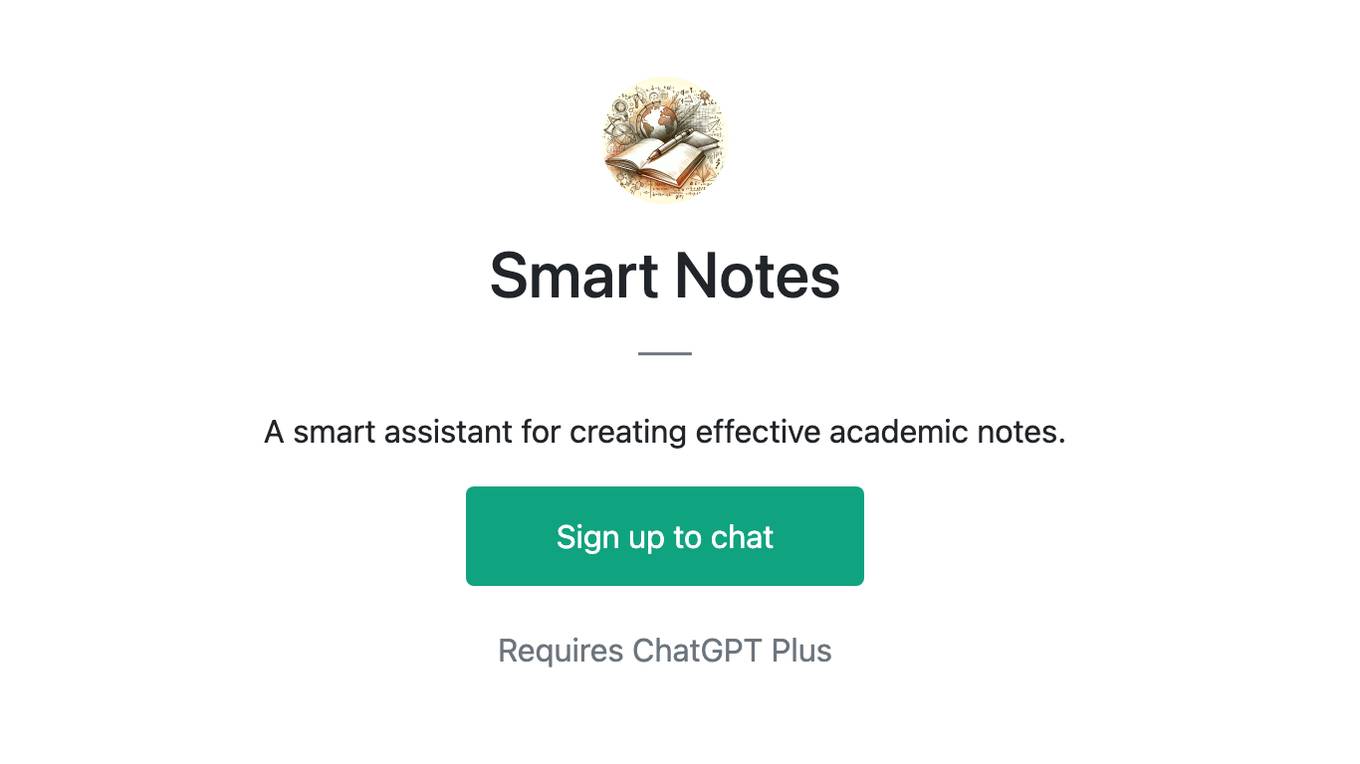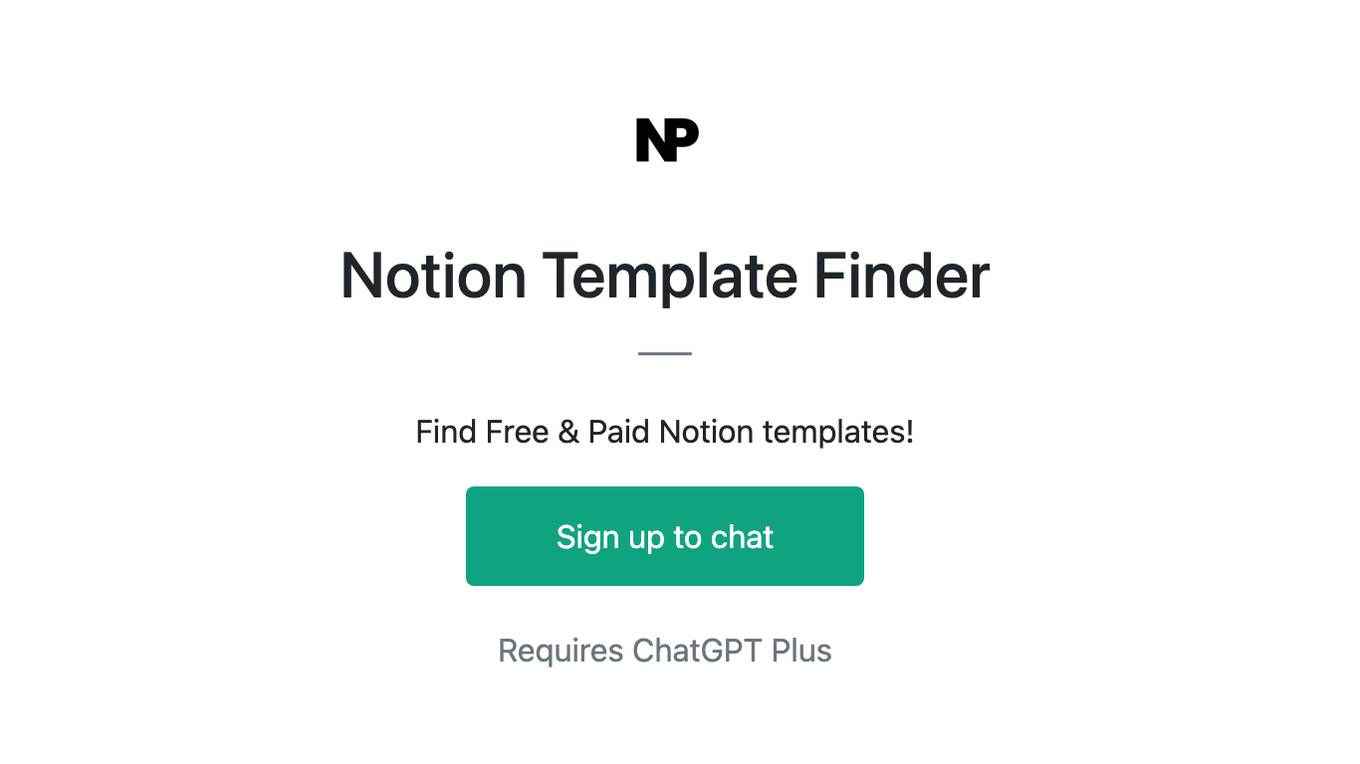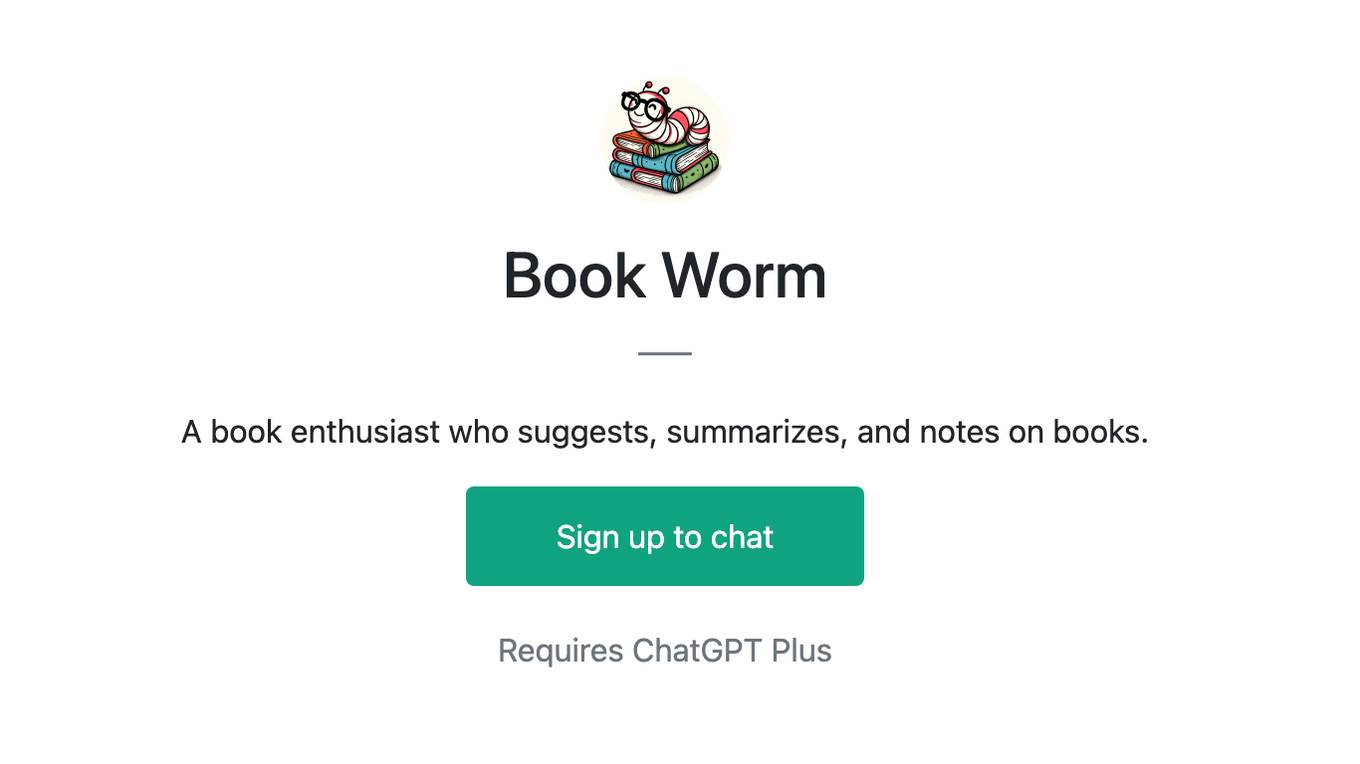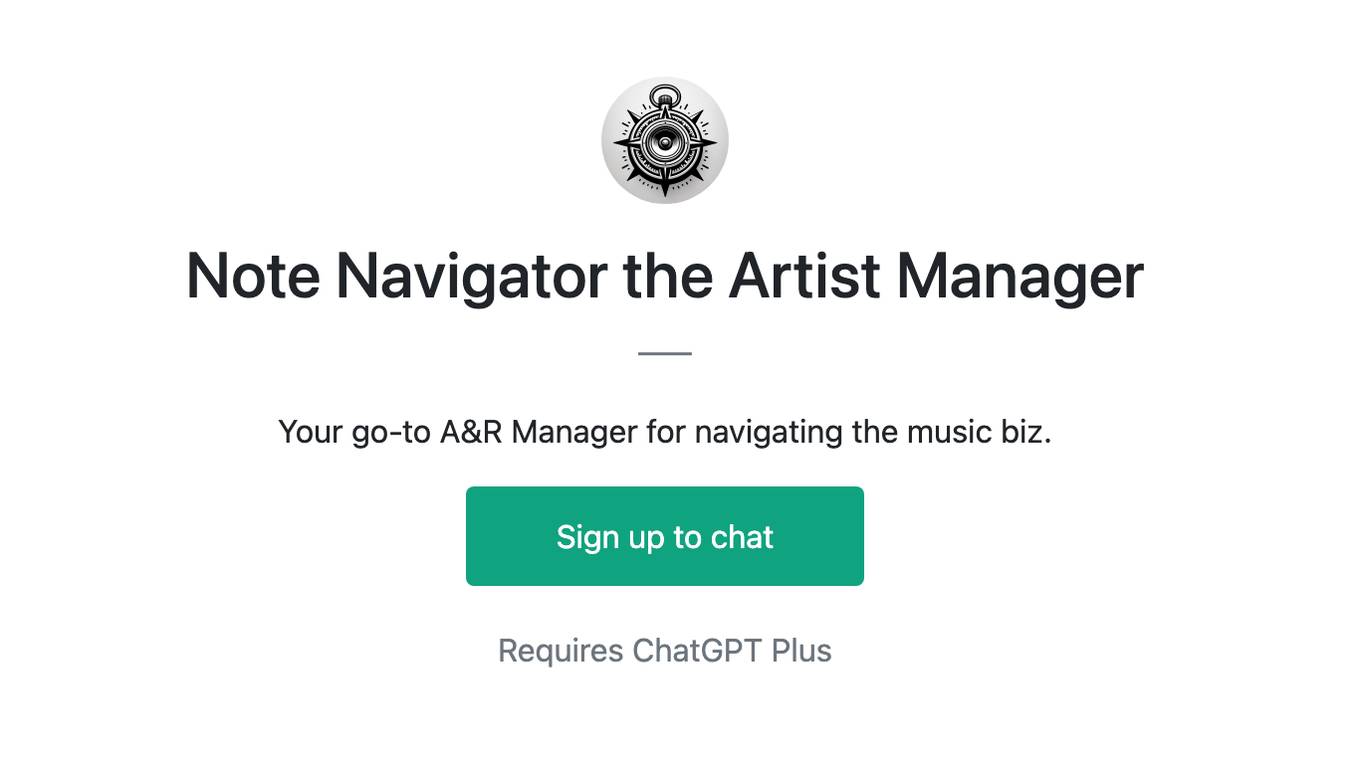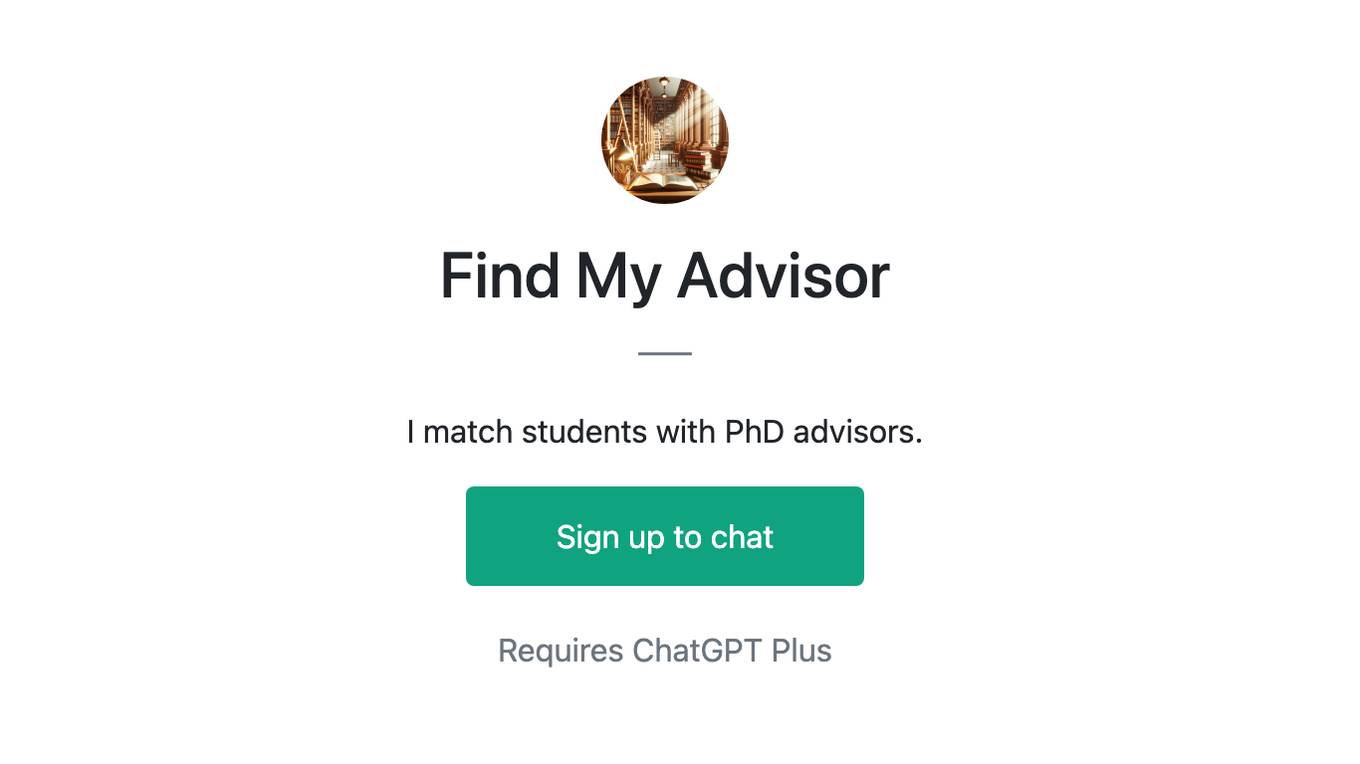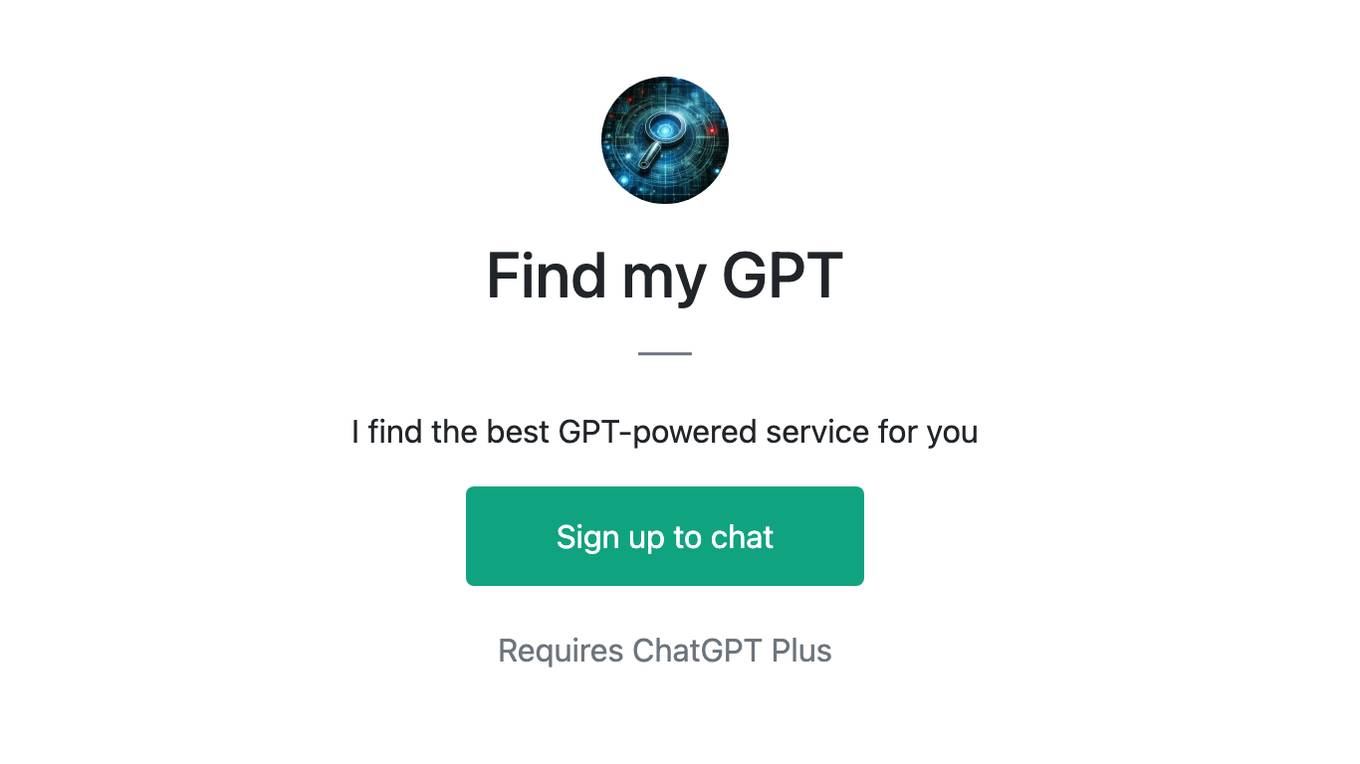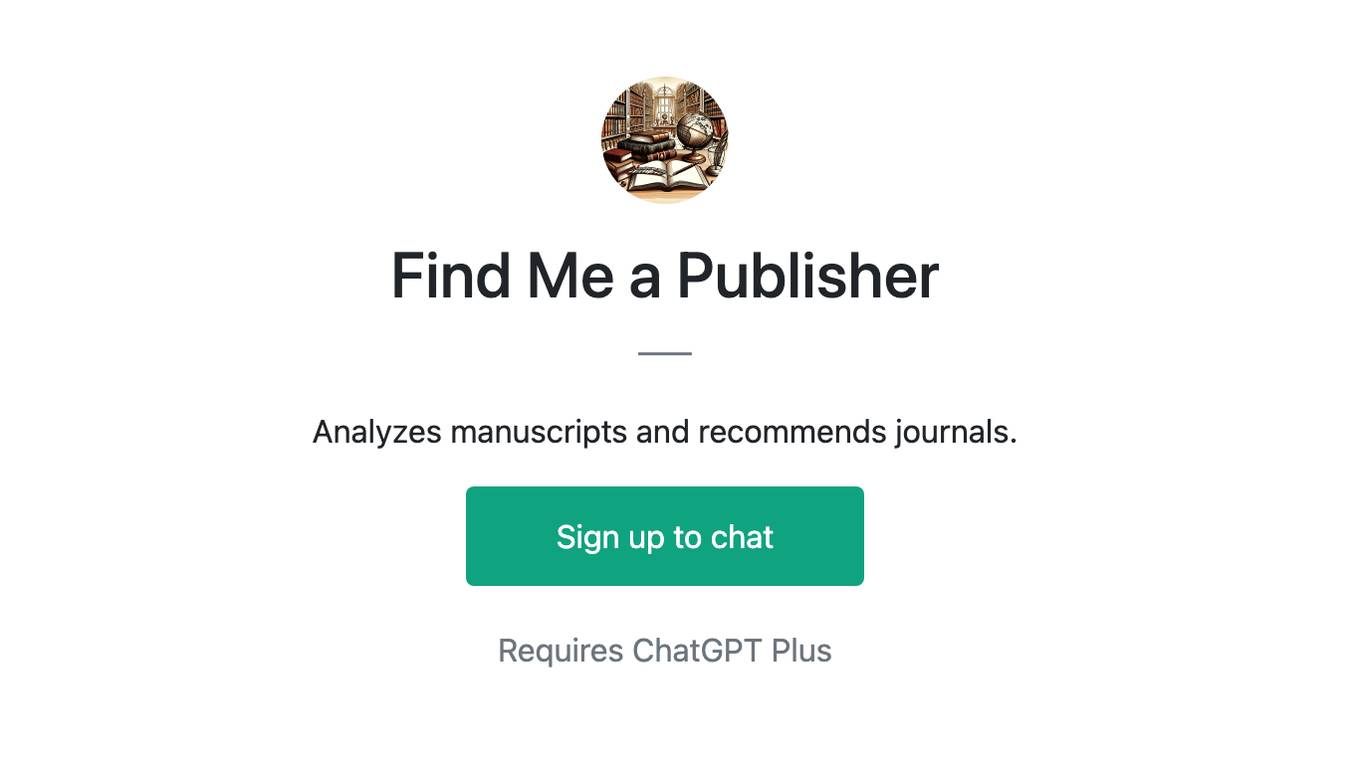Best AI tools for< Find Notes Quickly >
20 - AI tool Sites
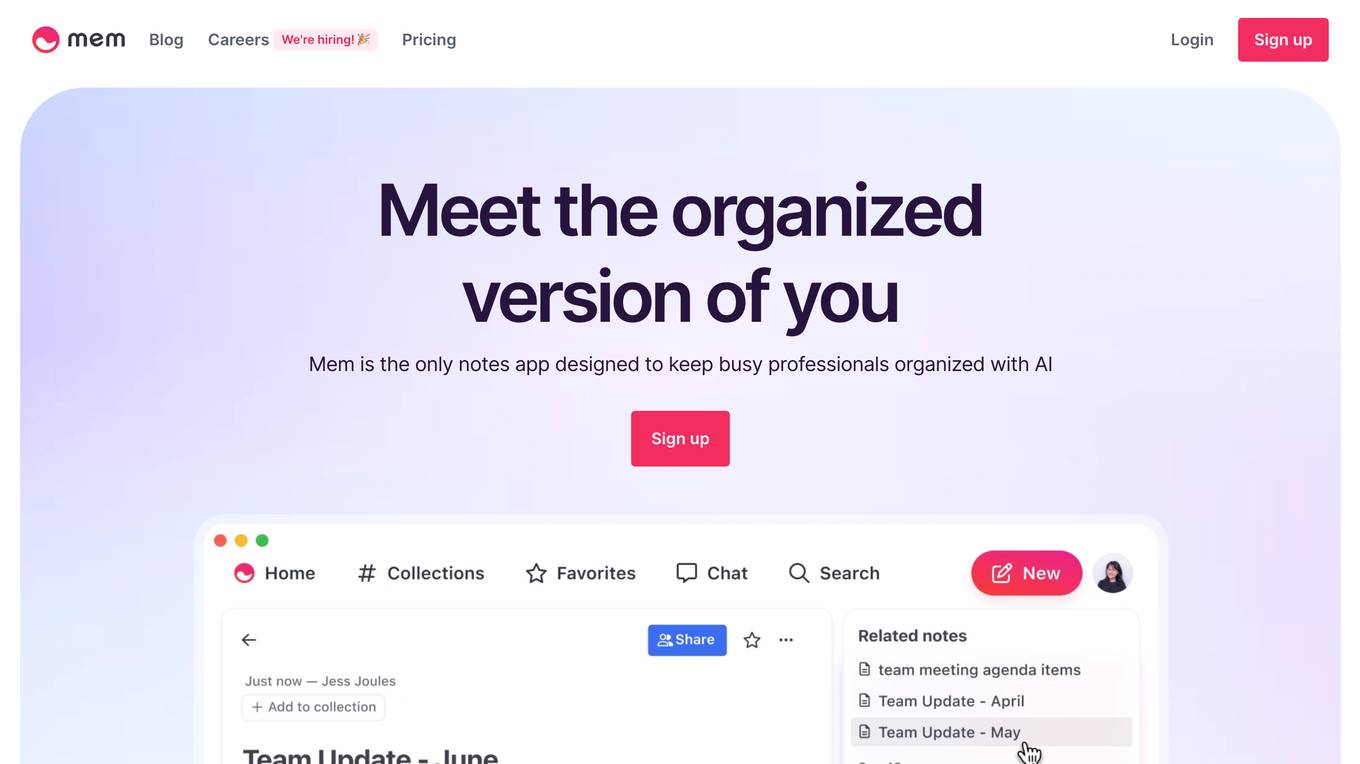
Mem
Mem is an AI notes app designed to keep users organized by organizing notes, providing quick access to information, and offering AI-powered features such as Mem Chat for finding specific information, Related Notes for showing related content, and AI-powered Collections for simplifying organization. The app is trusted by leaders and offers just-in-time suggestions, smart search capabilities, and collaboration features. Mem is loved by entrepreneurs, executives, content creators, researchers, and consultants for its ability to help with drafting pitches, remembering networking events, jotting down ideas, and creating various business-related documents.

Fathom AI Notetaker
Fathom is an AI-powered note-taking tool that helps you record, transcribe, and summarize your meetings. It integrates with Zoom and Google Meet, and offers a range of features to help you stay organized and productive. **Key Features** * **Automatic recording and transcription:** Fathom automatically records and transcribes your meetings, so you can focus on the conversation instead of taking notes. * **AI-generated summaries:** Fathom uses AI to generate summaries of your meetings, which can save you time and help you identify key takeaways. * **Highlighting and bookmarking:** You can highlight and bookmark important moments in your meetings, so you can easily find them later. * **Sharing and collaboration:** You can share your meeting recordings and summaries with others, and collaborate on notes and action items. * **Integrations:** Fathom integrates with a range of other tools, including Zoom, Google Meet, Slack, and Asana. **Benefits** * **Save time:** Fathom can save you hours of time by automatically recording and transcribing your meetings. * **Stay organized:** Fathom helps you stay organized by providing a central place to store your meeting recordings and notes. * **Improve productivity:** Fathom can help you improve your productivity by providing you with easy access to the information you need from your meetings. * **Make better decisions:** Fathom can help you make better decisions by providing you with a clear understanding of what was discussed in your meetings. **Pricing** Fathom is free to use for individuals. There is also a paid Team Edition that offers additional features, such as: * **Unlimited storage:** The Team Edition gives you unlimited storage for your meeting recordings and notes. * **Team management:** The Team Edition allows you to manage your team's access to Fathom. * **Custom branding:** The Team Edition allows you to customize Fathom with your own branding. **Alternatives** * Otter.ai * Trint * Descript * Rev **Use Cases** * **Sales:** Fathom can help sales teams track their progress and identify opportunities. * **Customer success:** Fathom can help customer success teams build relationships with their customers and resolve issues quickly. * **Product development:** Fathom can help product development teams gather feedback from users and improve their products. * **Marketing:** Fathom can help marketing teams track the effectiveness of their campaigns and generate leads. * **Education:** Fathom can help educators record and share lectures and other materials with students. **FAQ** **Q: How much does Fathom cost?** A: Fathom is free to use for individuals. There is also a paid Team Edition that offers additional features. **Q: What are the benefits of using Fathom?** A: Fathom can save you time, help you stay organized, improve your productivity, and make better decisions. **Q: What are the alternatives to Fathom?** A: Some alternatives to Fathom include Otter.ai, Trint, Descript, and Rev. **Q: What are some use cases for Fathom?** A: Fathom can be used for a variety of purposes, including sales, customer success, product development, marketing, and education.
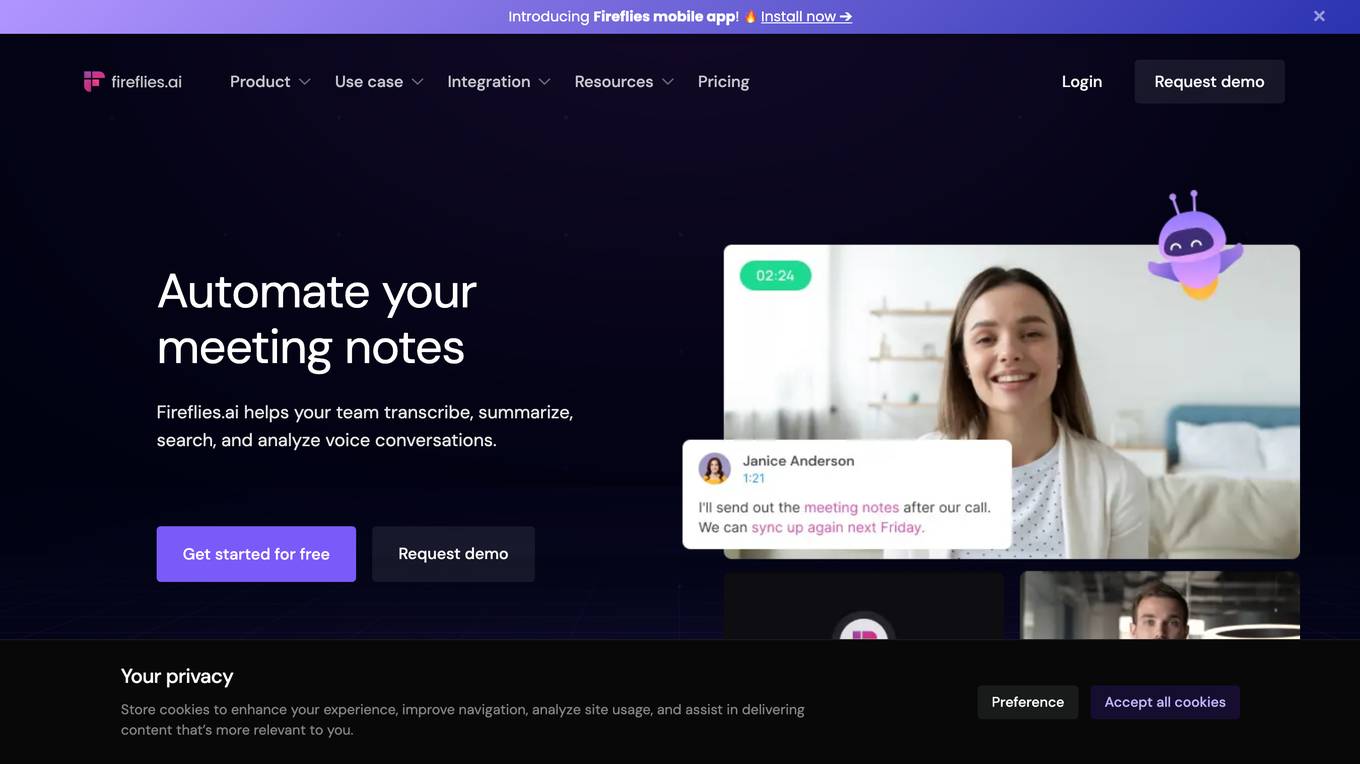
Fireflies.ai
Fireflies.ai is an AI-powered notetaker that helps teams transcribe, summarize, search, and analyze voice conversations. It integrates with popular video conferencing apps and dialers, allowing users to automatically record and transcribe meetings. Fireflies.ai also offers advanced features such as AI-powered search, collaboration tools, and conversation intelligence, enabling teams to quickly find key information, collaborate on meeting notes, and gain insights from their conversations.
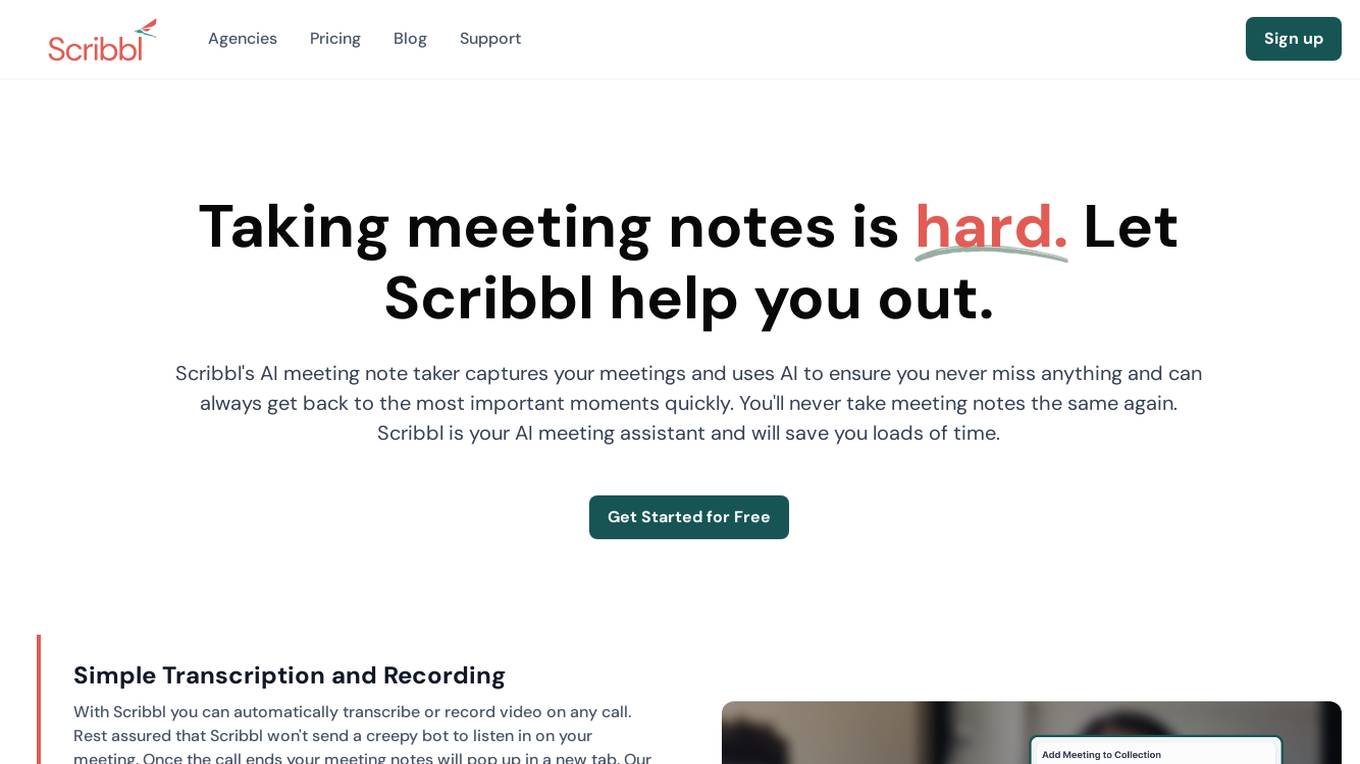
Scribbl
Scribbl is an AI note-taking tool designed to assist users in capturing meeting notes efficiently. It uses AI technology to transcribe and record meetings, break down discussions into digestible topics, and help users find key moments quickly. Scribbl aims to enhance post-meeting productivity by providing a seamless and organized note-taking experience.

Unriddle
Unriddle is an AI-powered research and writing tool that helps users quickly find information in documents, simplify complex topics, take notes, and write with the power of AI. It generates an AI assistant on top of any document, allowing users to quickly find, summarize, and understand information. Unriddle also understands the meaning behind users' writing and automatically links them to relevant information they've read and written about in the past. Additionally, it offers a Chrome extension for summarizing articles with a single click and supports over 90 languages.
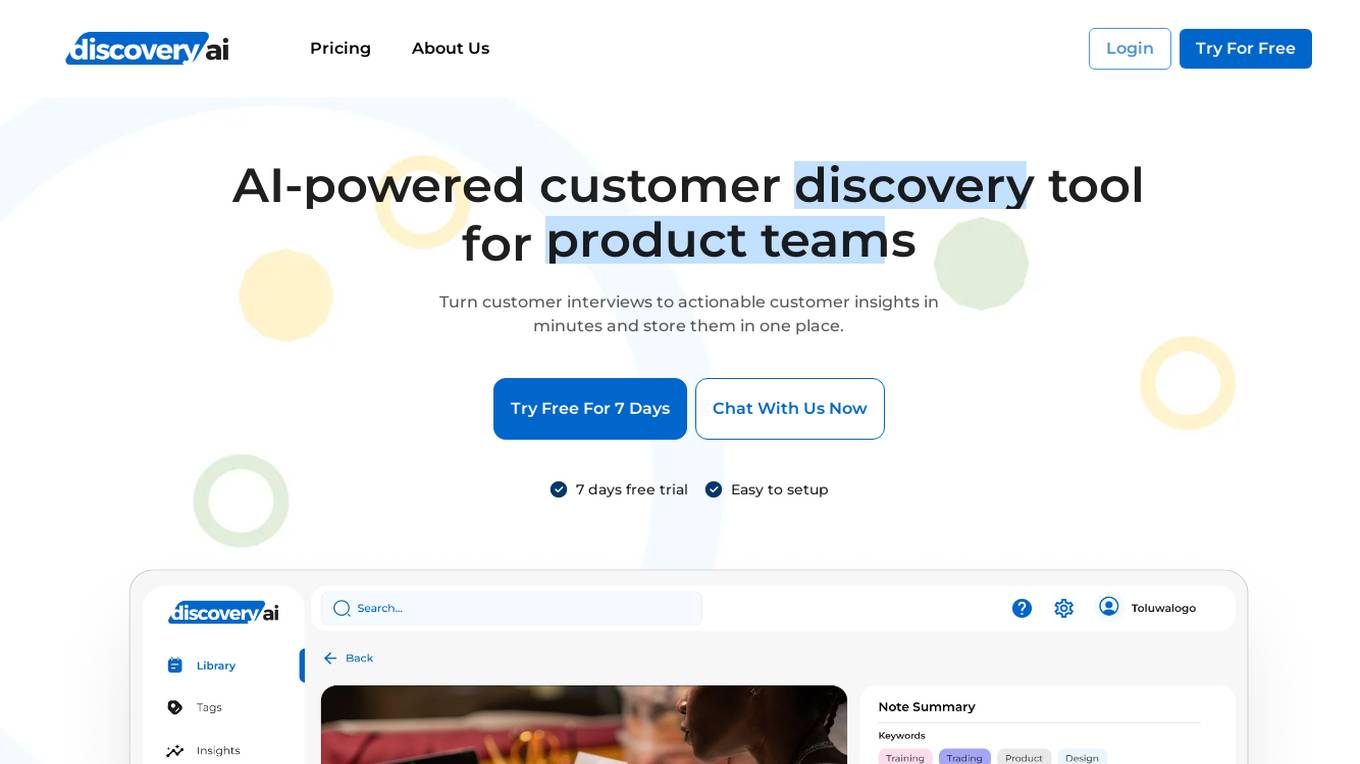
DiscoveryAi
DiscoveryAi is an AI-powered research assistant that helps you find and organize the information you need to make better decisions. With DiscoveryAi, you can quickly and easily search through a vast database of articles, news, and other content to find the information you need. You can also use DiscoveryAi to organize your research into folders and notes, and to collaborate with others on research projects.

Notable AI
Notable AI is an AI tool designed to help users capture, share, and manage key takeaways from various sources efficiently. It leverages artificial intelligence to streamline the process of extracting and organizing important information, making it easier for users to access and utilize valuable insights. With Notable AI, users can enhance their productivity by quickly capturing essential points, sharing them with others, and effectively managing their key learnings.
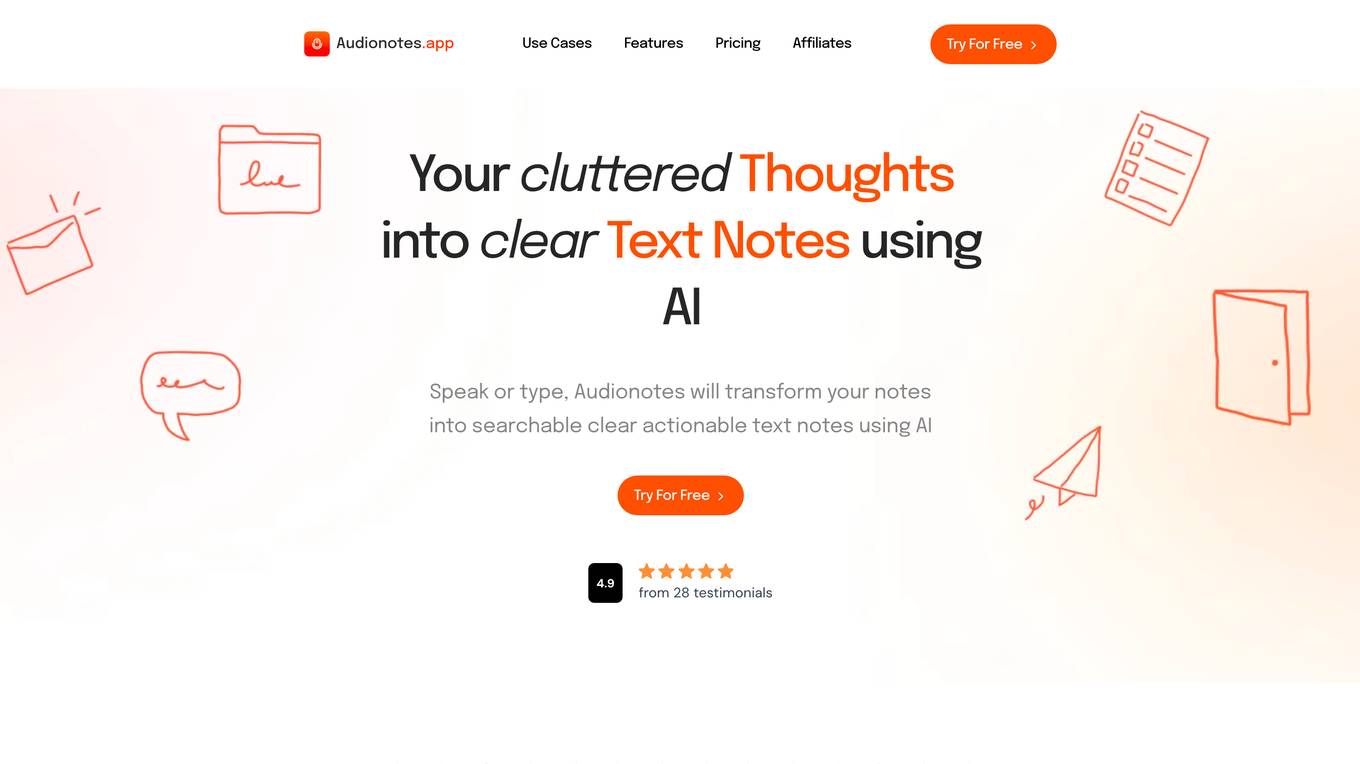
Audionotes
Audionotes is an AI-powered note-taking app that uses speech-to-text technology to transcribe and summarize audio recordings. It also offers a variety of features to help users organize and manage their notes, including the ability to create to-do lists, set reminders, and share notes with others. Audionotes is available as a web app, a mobile app, and a Chrome extension.
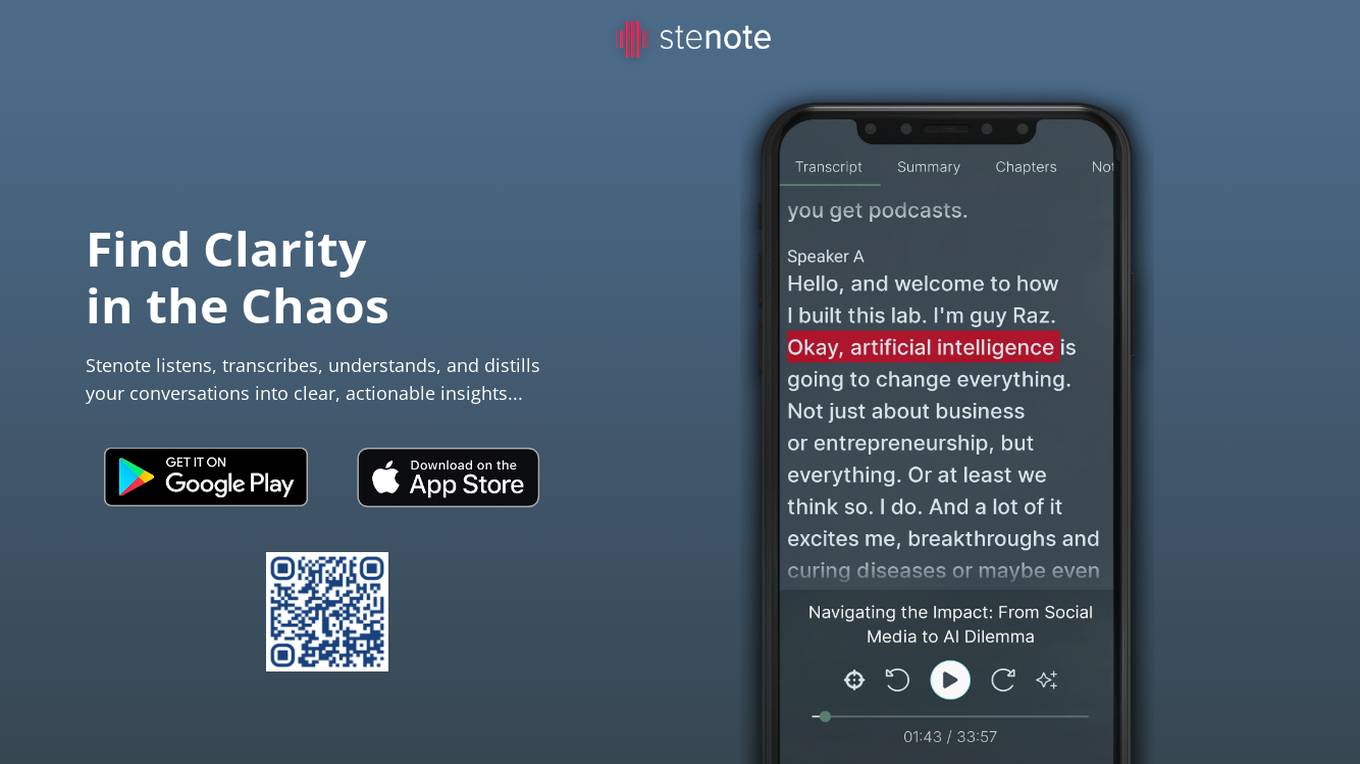
Stenote
Stenote is an AI-powered transcription and summarization tool that provides real-time, highly accurate transcriptions and concise summaries of conversations, lectures, and meetings. With its advanced AI capabilities, Stenote captures every word spoken, identifies key highlights, and generates comprehensive meeting notes, making it an invaluable tool for professionals seeking clarity and efficiency in their communication.

AI Fragrance Finder
AI Fragrance Finder is a website that uses artificial intelligence to help users find the perfect fragrance. The website has a database of over 1,000 fragrances, and users can search for fragrances by scent, notes, and occasion. AI Fragrance Finder also provides personalized recommendations based on the user's preferences.
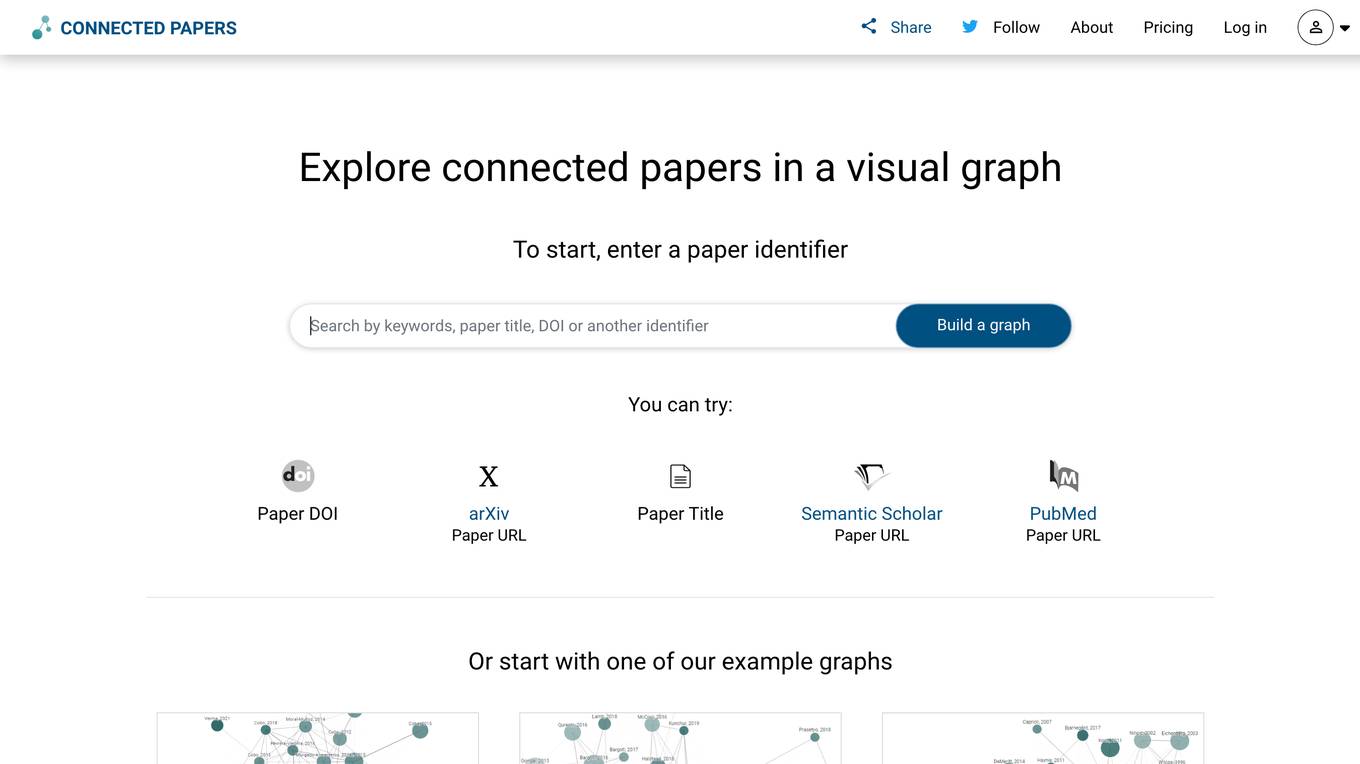
Connected Papers
Connected Papers is a search engine for academic papers that uses artificial intelligence to help users find and explore relevant research. It allows users to search for papers by keyword, author, or title, and then explore the connections between them. Connected Papers also provides a variety of tools to help users organize and manage their research, including the ability to create custom collections of papers, add notes and annotations, and share their research with others.
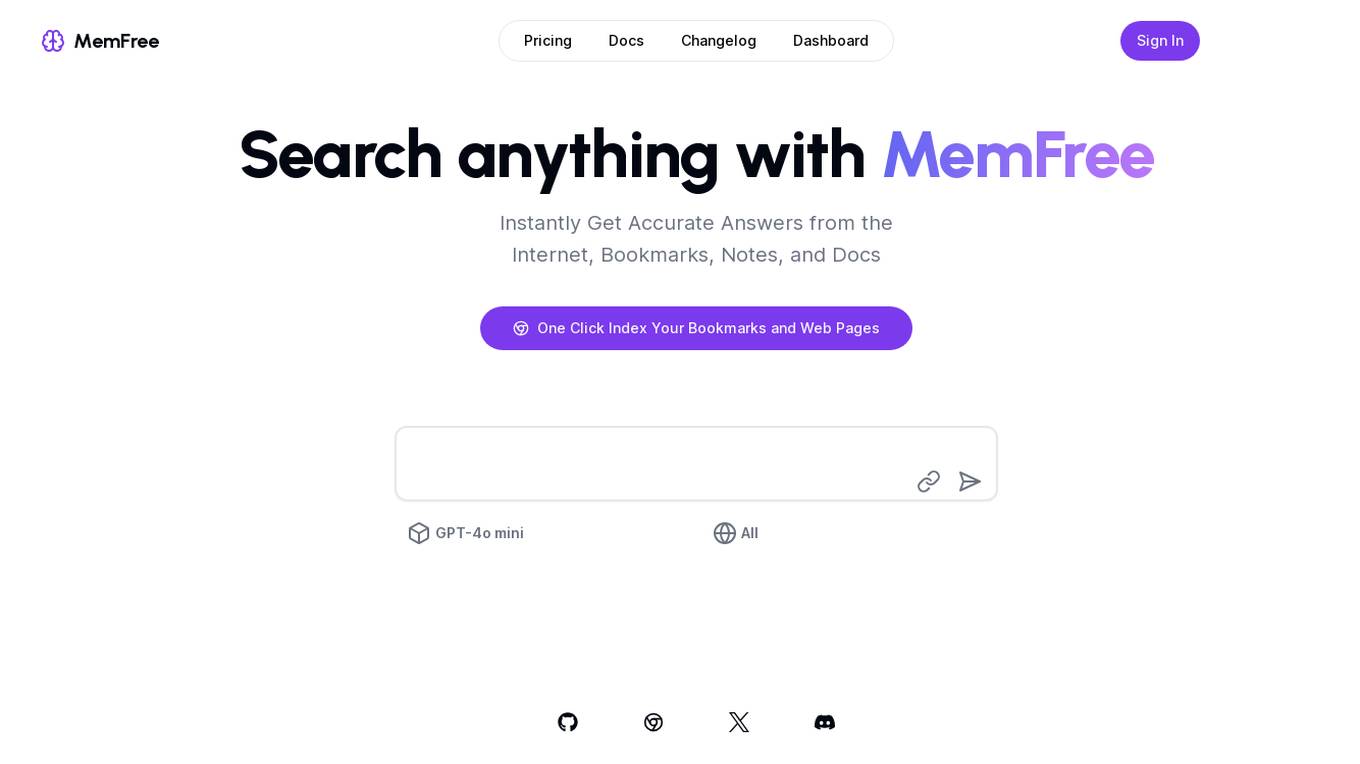
MemFree
MemFree is a hybrid AI search tool that allows users to search for information instantly and receive accurate answers from the internet, bookmarks, notes, and documents. With MemFree, users can easily index their bookmarks and web pages with just one click. The tool leverages GPT-4o mini for enhanced search capabilities, making it a powerful and efficient AI application for information retrieval.
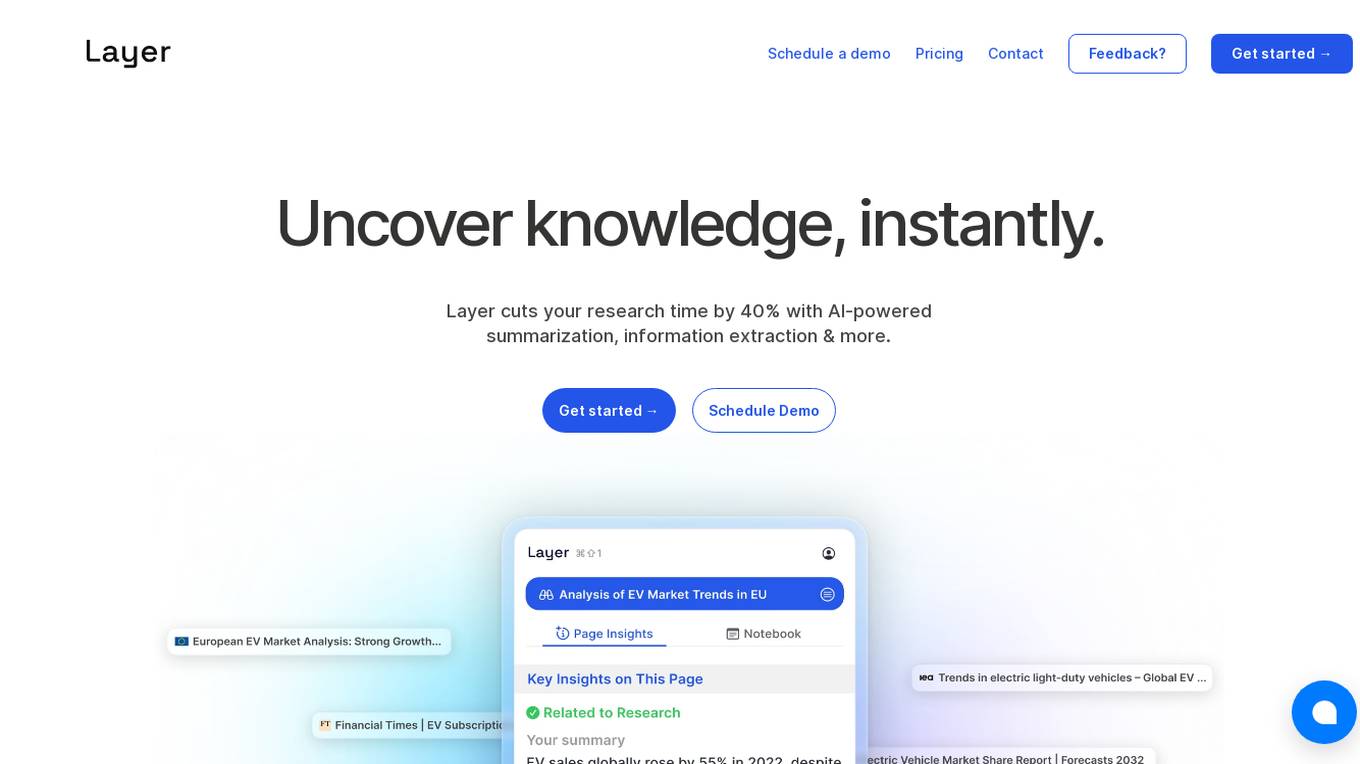
Layer
Layer is an AI research copilot that helps you stay up-to-date with the latest advancements in AI and find the resources you need to build your own AI projects.

Fabric
Fabric is an AI-native workspace and file explorer for individuals and teams. It is a self-organizing tool that gathers your drives, clouds, notes, links, and files into one intelligent home. With Fabric, you can find anything fast, in natural language, chat with your data, and collaborate on any file or document. Thousands of creators, researchers, and thinkers from the world's biggest brands use Fabric to organize their digital world and work more efficiently.
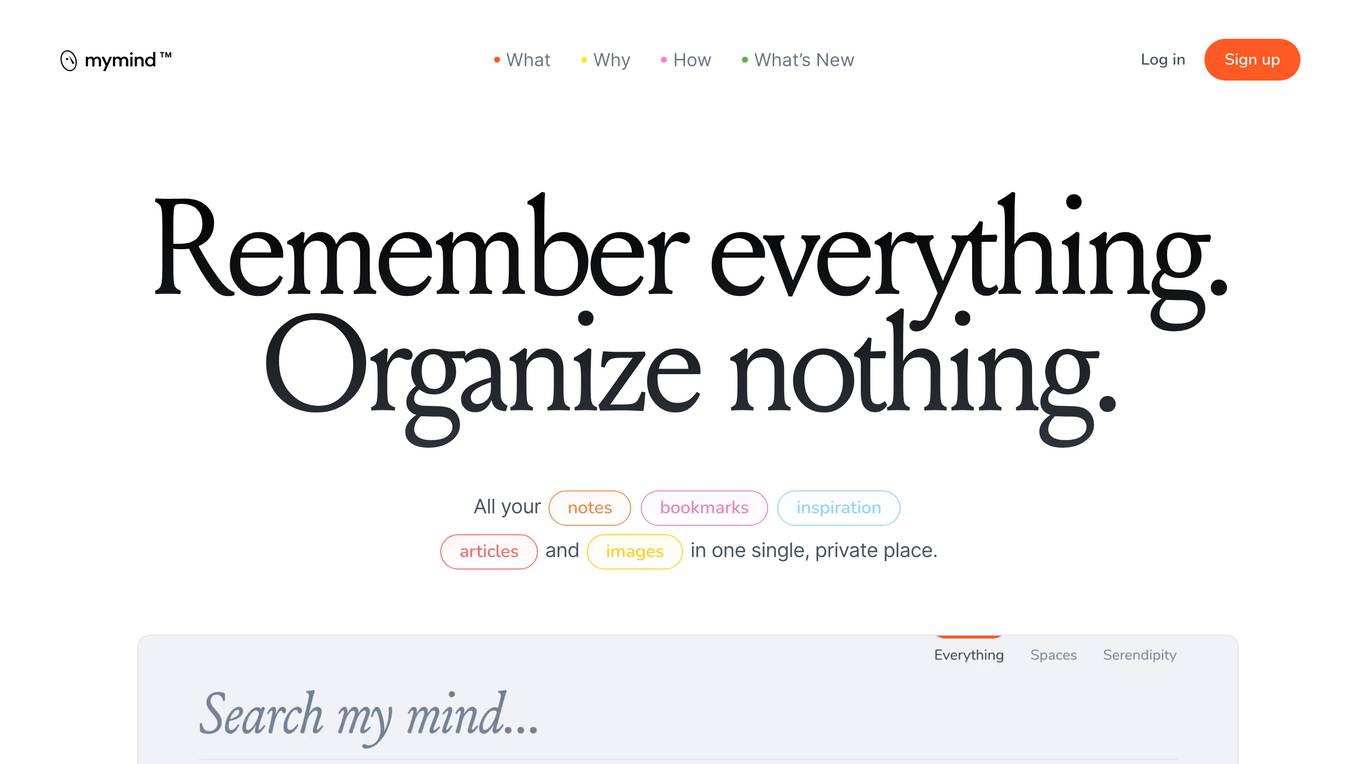
mymind
mymind is an AI-powered extension for organizing and storing all your notes, bookmarks, inspiration, articles, and images in one private place. It uses Artificial Intelligence to automatically categorize and visualize your saved content, making it easy to find and access. With features like smart bookmarking, text recognition, and instant collections, mymind aims to provide a seamless and efficient way to manage and retrieve information. The application prioritizes privacy and simplicity, offering a clutter-free environment for users to focus on what matters most to them.
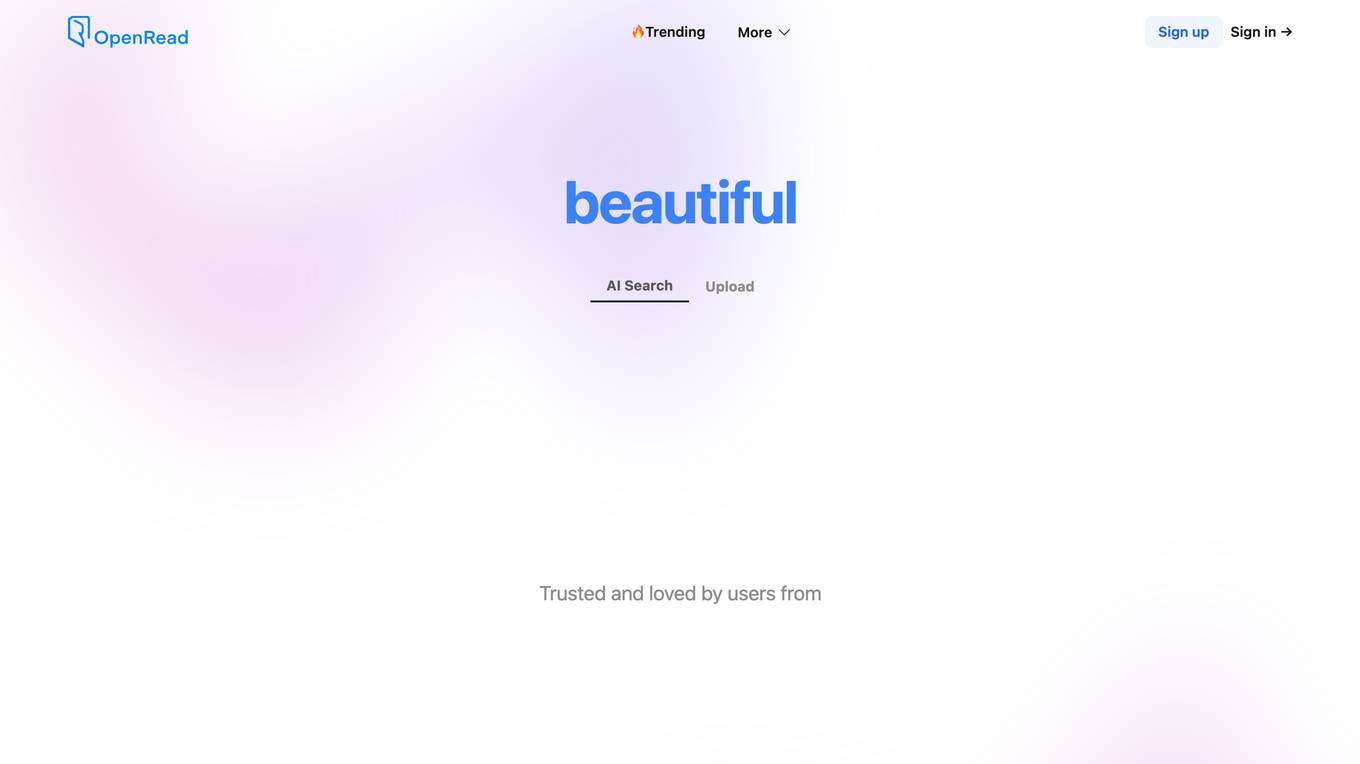
OpenRead
OpenRead is an AI-powered research tool that helps users discover, understand, and organize scientific literature. It offers a variety of features to make research more efficient and effective, including semantic search, AI summarization, and note-taking tools. OpenRead is designed to help researchers of all levels, from students to experienced professionals, save time and improve their research outcomes.
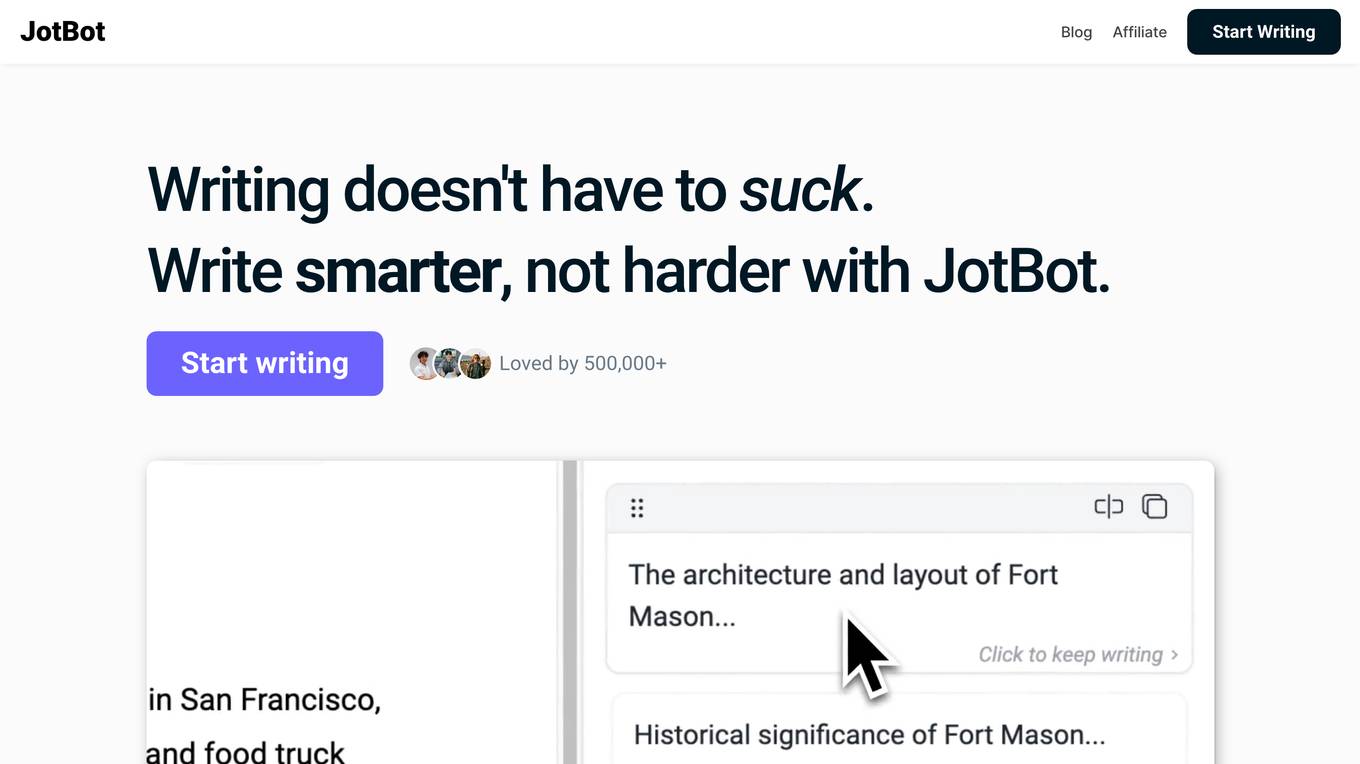
JotBot AI
JotBot is an AI writing tool that assists users in writing and research tasks by handling the struggle of finding the right words and sources. It offers features such as AI autocomplete, finding and citing sources, generating drafts in the user's voice, chat assistance, AI commands for writing and editing, and automatic note-taking. JotBot is trusted by top universities and businesses, with over 750,000 users leveraging its capabilities to enhance their writing process.
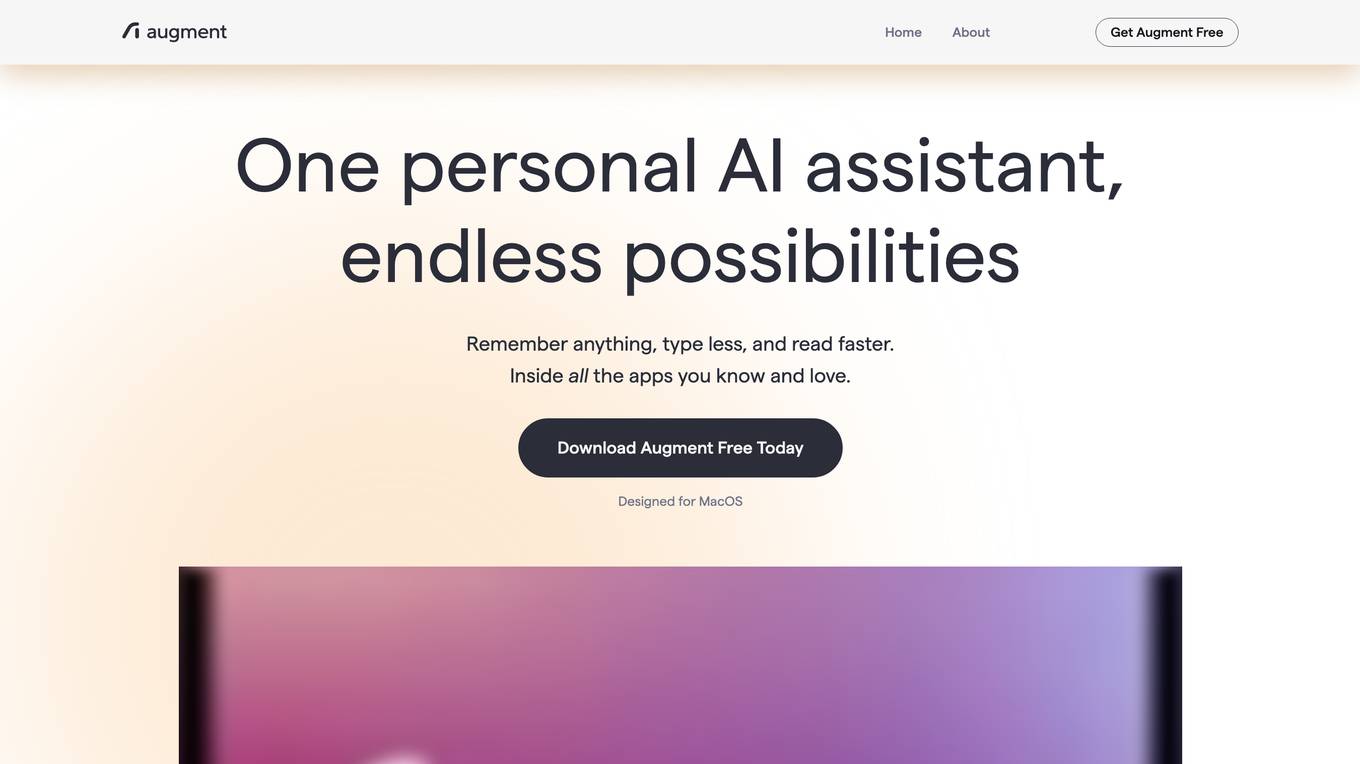
Augment
Augment is a personal AI assistant that helps you remember anything, type less, and read faster. It works inside all the apps you know and love, so you can stay focused on the task at hand. Augment is designed for macOS and is trusted by professionals from all walks of life.
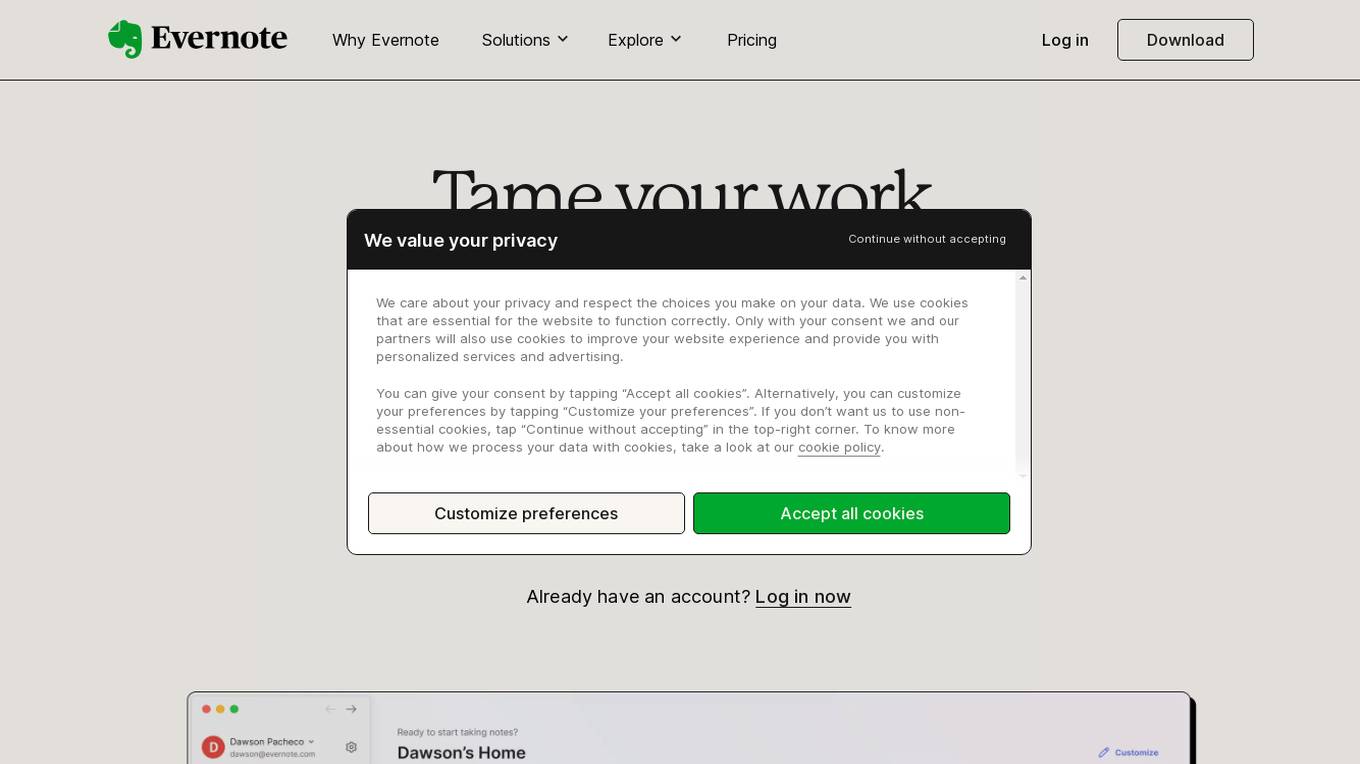
Evernote
Evernote is a powerful note-taking application that helps users organize their notes, tasks, and schedules in one place. It offers features such as AI-powered search, collaboration tools, web clipping, document scanning, and personalization options. Users can access their information across all devices, even in offline mode. Evernote is suitable for executives, entrepreneurs, students, and creative individuals to capture and arrange their ideas efficiently.

Recall
Recall is a web and mobile application that allows users to summarize and save any online content. It uses artificial intelligence to automatically categorize and connect saved content, making it easy to find and rediscover later. Recall also offers spaced repetition learning, data export, and offline access.
20 - Open Source AI Tools
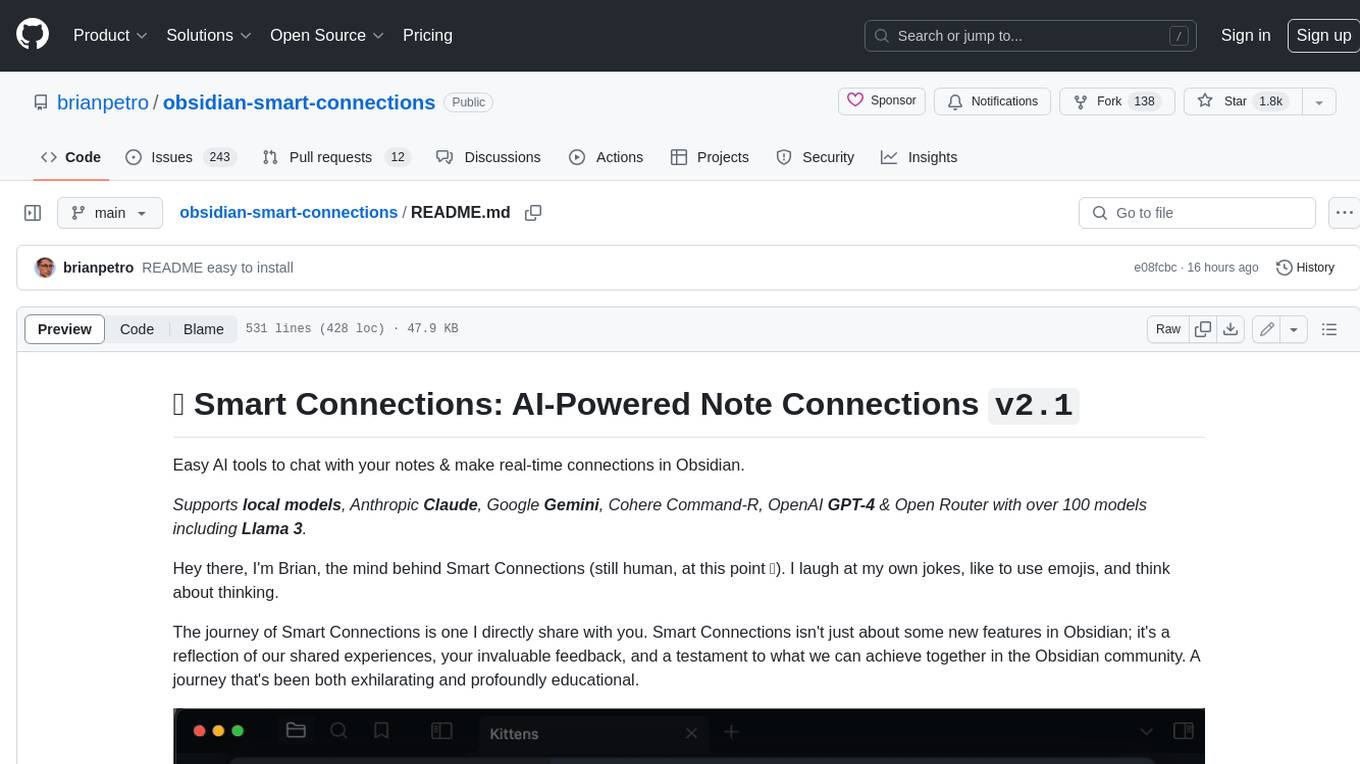
obsidian-smart-connections
Smart Connections is an AI-powered plugin for Obsidian that helps you discover hidden connections and insights in your notes. With features like Smart View for real-time relevant note suggestions and Smart Chat for chatting with your notes, Smart Connections makes it easier than ever to stay organized and uncover hidden connections between your notes. Its intuitive interface and customizable settings ensure a seamless experience, tailored to your unique needs and preferences.
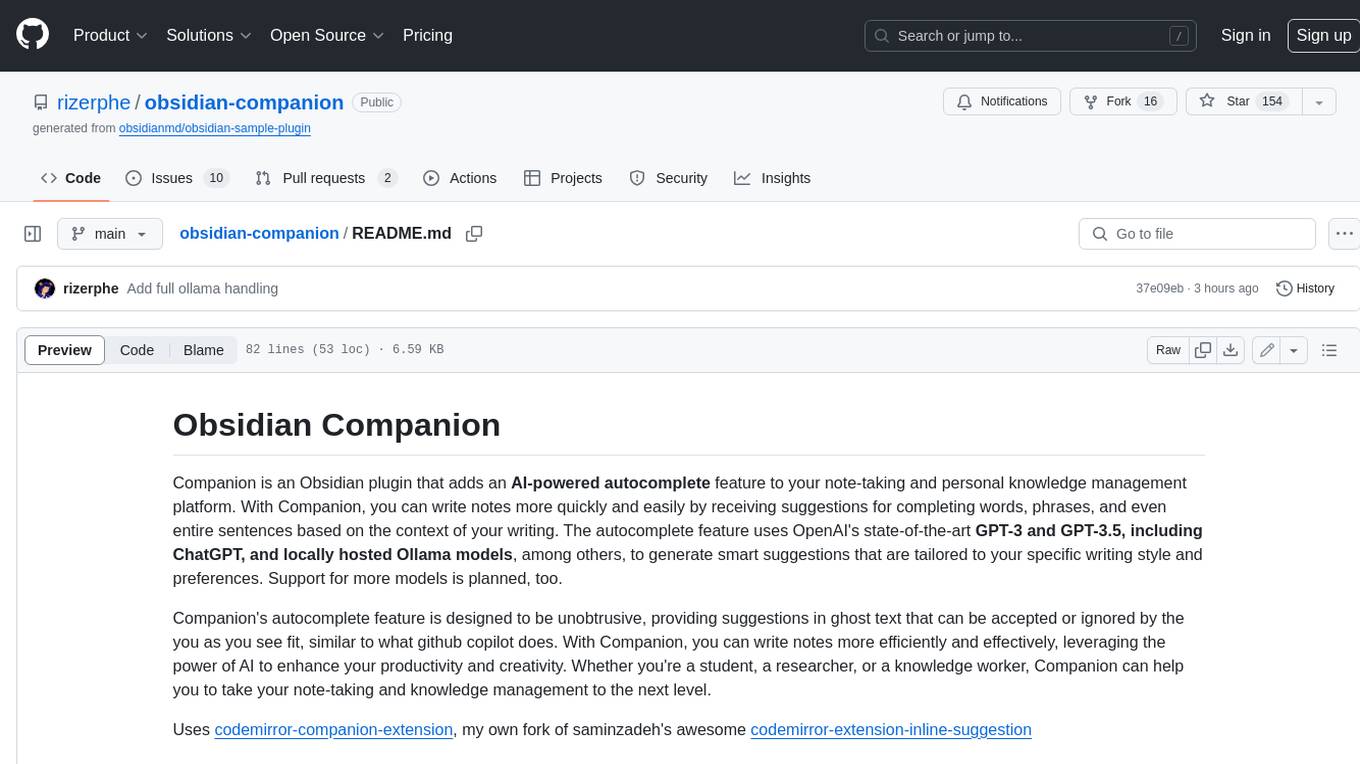
obsidian-companion
Companion is an Obsidian plugin that adds an AI-powered autocomplete feature to your note-taking and personal knowledge management platform. With Companion, you can write notes more quickly and easily by receiving suggestions for completing words, phrases, and even entire sentences based on the context of your writing. The autocomplete feature uses OpenAI's state-of-the-art GPT-3 and GPT-3.5, including ChatGPT, and locally hosted Ollama models, among others, to generate smart suggestions that are tailored to your specific writing style and preferences. Support for more models is planned, too.
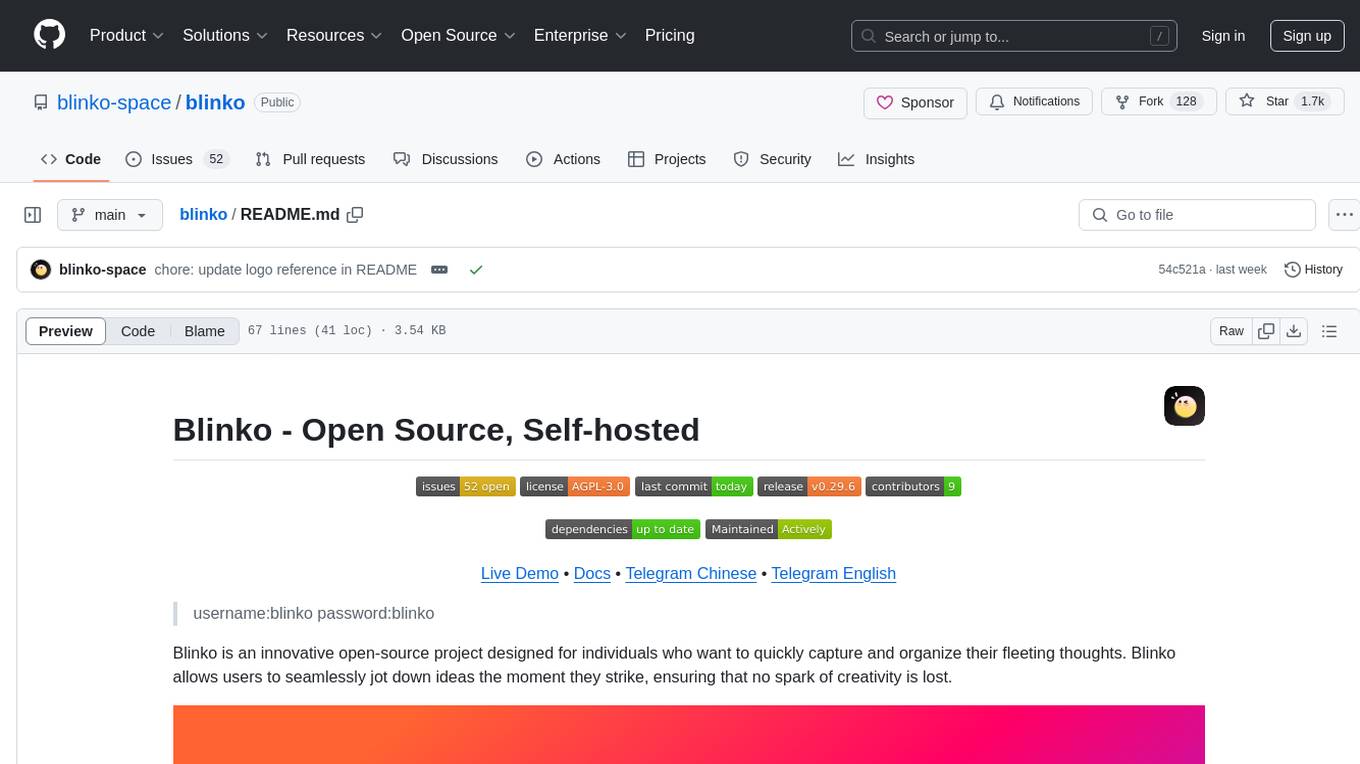
blinko
Blinko is an innovative open-source project designed for individuals who want to quickly capture and organize their fleeting thoughts. It allows users to seamlessly jot down ideas the moment they strike, ensuring that no spark of creativity is lost. With advanced AI-powered note retrieval, data ownership, efficient and fast capturing, lightweight architecture, and open collaboration, Blinko offers a comprehensive solution for managing and accessing notes.
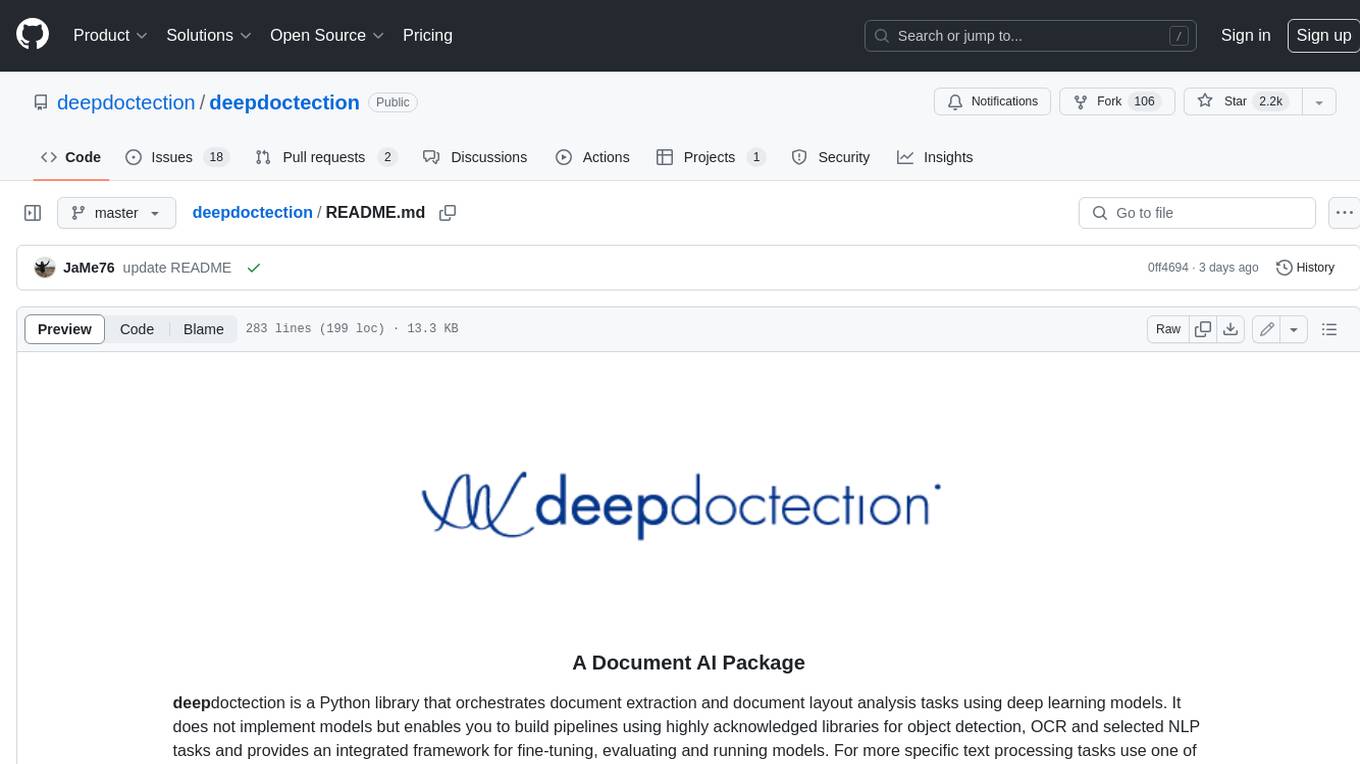
deepdoctection
**deep** doctection is a Python library that orchestrates document extraction and document layout analysis tasks using deep learning models. It does not implement models but enables you to build pipelines using highly acknowledged libraries for object detection, OCR and selected NLP tasks and provides an integrated framework for fine-tuning, evaluating and running models. For more specific text processing tasks use one of the many other great NLP libraries. **deep** doctection focuses on applications and is made for those who want to solve real world problems related to document extraction from PDFs or scans in various image formats. **deep** doctection provides model wrappers of supported libraries for various tasks to be integrated into pipelines. Its core function does not depend on any specific deep learning library. Selected models for the following tasks are currently supported: * Document layout analysis including table recognition in Tensorflow with **Tensorpack**, or PyTorch with **Detectron2**, * OCR with support of **Tesseract**, **DocTr** (Tensorflow and PyTorch implementations available) and a wrapper to an API for a commercial solution, * Text mining for native PDFs with **pdfplumber**, * Language detection with **fastText**, * Deskewing and rotating images with **jdeskew**. * Document and token classification with all LayoutLM models provided by the **Transformer library**. (Yes, you can use any LayoutLM-model with any of the provided OCR-or pdfplumber tools straight away!). * Table detection and table structure recognition with **table-transformer**. * There is a small dataset for token classification available and a lot of new tutorials to show, how to train and evaluate this dataset using LayoutLMv1, LayoutLMv2, LayoutXLM and LayoutLMv3. * Comprehensive configuration of **analyzer** like choosing different models, output parsing, OCR selection. Check this notebook or the docs for more infos. * Document layout analysis and table recognition now runs with **Torchscript** (CPU) as well and **Detectron2** is not required anymore for basic inference. * [**new**] More angle predictors for determining the rotation of a document based on **Tesseract** and **DocTr** (not contained in the built-in Analyzer). * [**new**] Token classification with **LiLT** via **transformers**. We have added a model wrapper for token classification with LiLT and added a some LiLT models to the model catalog that seem to look promising, especially if you want to train a model on non-english data. The training script for LayoutLM can be used for LiLT as well and we will be providing a notebook on how to train a model on a custom dataset soon. **deep** doctection provides on top of that methods for pre-processing inputs to models like cropping or resizing and to post-process results, like validating duplicate outputs, relating words to detected layout segments or ordering words into contiguous text. You will get an output in JSON format that you can customize even further by yourself. Have a look at the **introduction notebook** in the notebook repo for an easy start. Check the **release notes** for recent updates. **deep** doctection or its support libraries provide pre-trained models that are in most of the cases available at the **Hugging Face Model Hub** or that will be automatically downloaded once requested. For instance, you can find pre-trained object detection models from the Tensorpack or Detectron2 framework for coarse layout analysis, table cell detection and table recognition. Training is a substantial part to get pipelines ready on some specific domain, let it be document layout analysis, document classification or NER. **deep** doctection provides training scripts for models that are based on trainers developed from the library that hosts the model code. Moreover, **deep** doctection hosts code to some well established datasets like **Publaynet** that makes it easy to experiment. It also contains mappings from widely used data formats like COCO and it has a dataset framework (akin to **datasets** so that setting up training on a custom dataset becomes very easy. **This notebook** shows you how to do this. **deep** doctection comes equipped with a framework that allows you to evaluate predictions of a single or multiple models in a pipeline against some ground truth. Check again **here** how it is done. Having set up a pipeline it takes you a few lines of code to instantiate the pipeline and after a for loop all pages will be processed through the pipeline.
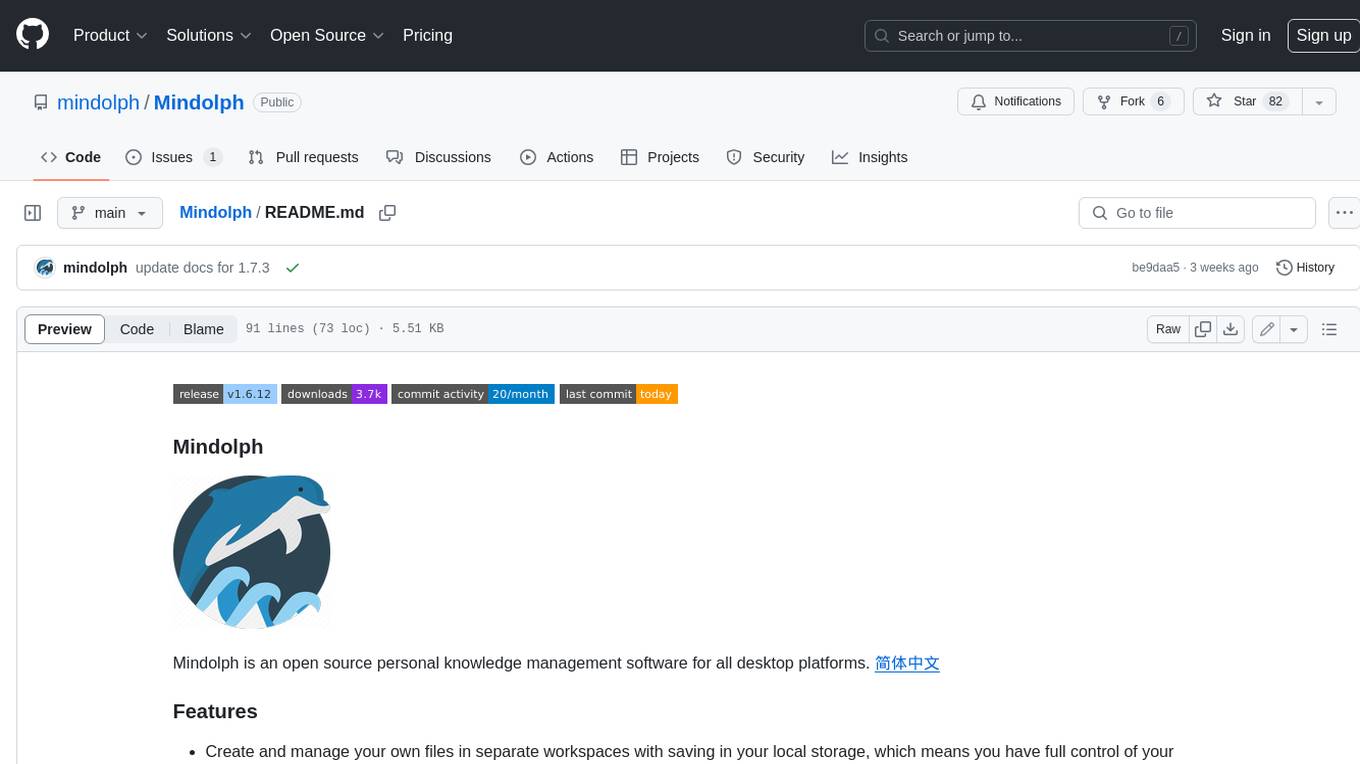
Mindolph
Mindolph is an open source personal knowledge management software for all desktop platforms. It allows users to create and manage their own files in separate workspaces with saving in their local storage, organize their files as a tree in their workspaces, and have multiple tabs for opening files instead of a single file window. Mindolph supports Mind Map, Markdown, PlantUML, CSV sheet, and plain text file formats. It also has features such as quickly navigating to files and searching text in files under a specific folder, editing mind maps easily and quickly with key shortcuts, supporting themes and providing some pre-defined themes, importing from other mind map formats, and exporting to other file formats.
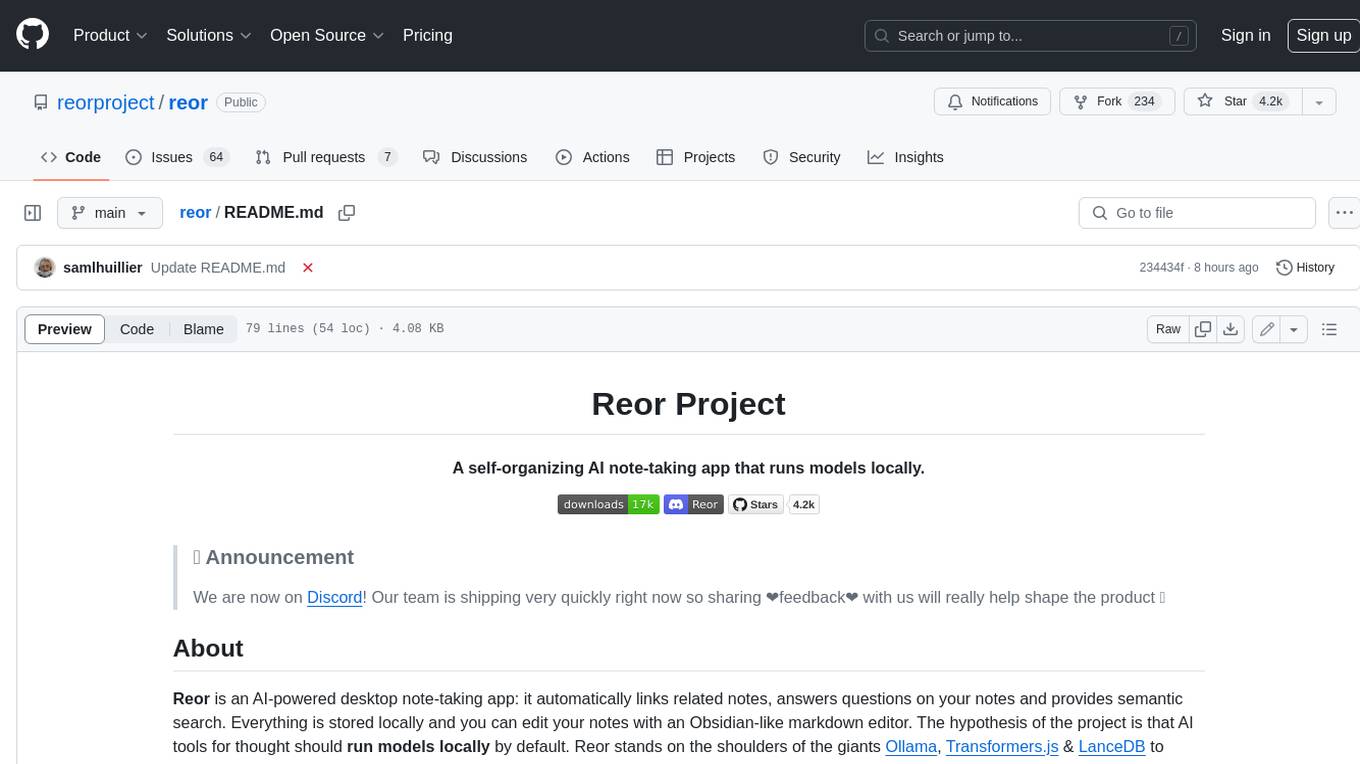
reor
Reor is an AI-powered desktop note-taking app that automatically links related notes, answers questions on your notes, and provides semantic search. Everything is stored locally and you can edit your notes with an Obsidian-like markdown editor. The hypothesis of the project is that AI tools for thought should run models locally by default. Reor stands on the shoulders of the giants Ollama, Transformers.js & LanceDB to enable both LLMs and embedding models to run locally. Connecting to OpenAI or OpenAI-compatible APIs like Oobabooga is also supported.
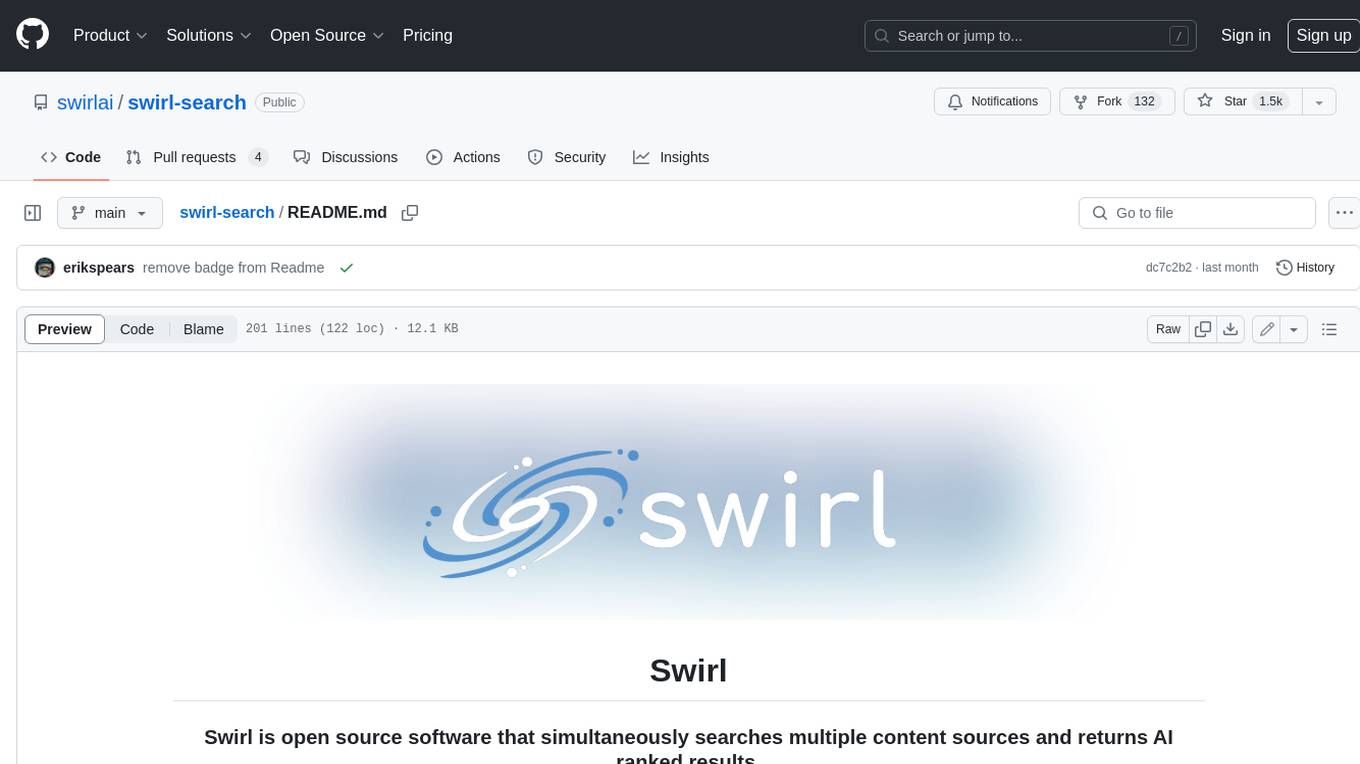
swirl-search
Swirl is an open-source software that allows users to simultaneously search multiple content sources and receive AI-ranked results. It connects to various data sources, including databases, public data services, and enterprise sources, and utilizes AI and LLMs to generate insights and answers based on the user's data. Swirl is easy to use, requiring only the download of a YML file, starting in Docker, and searching with Swirl. Users can add credentials to preloaded SearchProviders to access more sources. Swirl also offers integration with ChatGPT as a configured AI model. It adapts and distributes user queries to anything with a search API, re-ranking the unified results using Large Language Models without extracting or indexing anything. Swirl includes five Google Programmable Search Engines (PSEs) to get users up and running quickly. Key features of Swirl include Microsoft 365 integration, SearchProvider configurations, query adaptation, synchronous or asynchronous search federation, optional subscribe feature, pipelining of Processor stages, results stored in SQLite3 or PostgreSQL, built-in Query Transformation support, matching on word stems and handling of stopwords, duplicate detection, re-ranking of unified results using Cosine Vector Similarity, result mixers, page through all results requested, sample data sets, optional spell correction, optional search/result expiration service, easily extensible Connector and Mixer objects, and a welcoming community for collaboration and support.
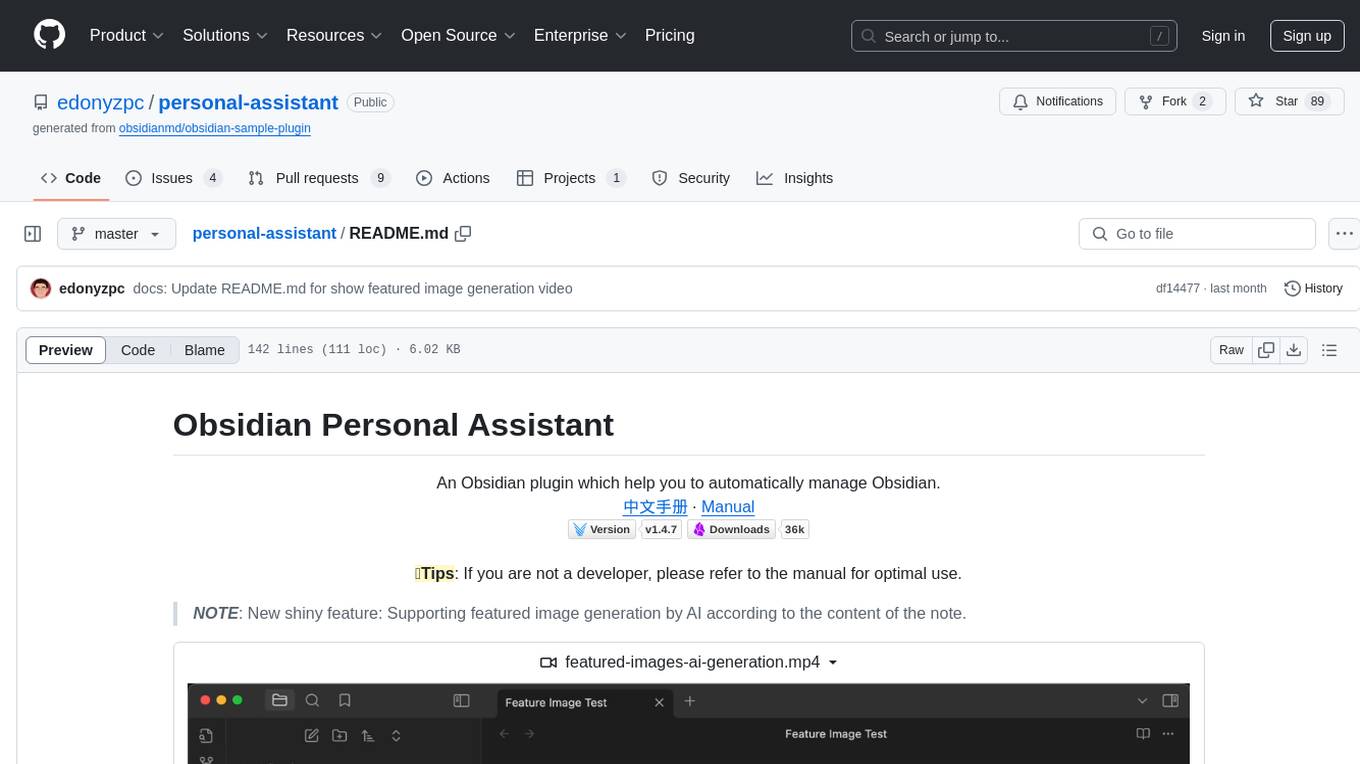
personal-assistant
Obsidian Personal Assistant is a plugin designed to help users manage their Obsidian notes more efficiently. It offers features like automatically creating notes in specified directories, opening related graph views, managing plugins and themes, setting graph view colors, and more. The plugin aims to streamline note-taking and organization within the Obsidian app, catering to users who seek automation and customization in their note management workflow.
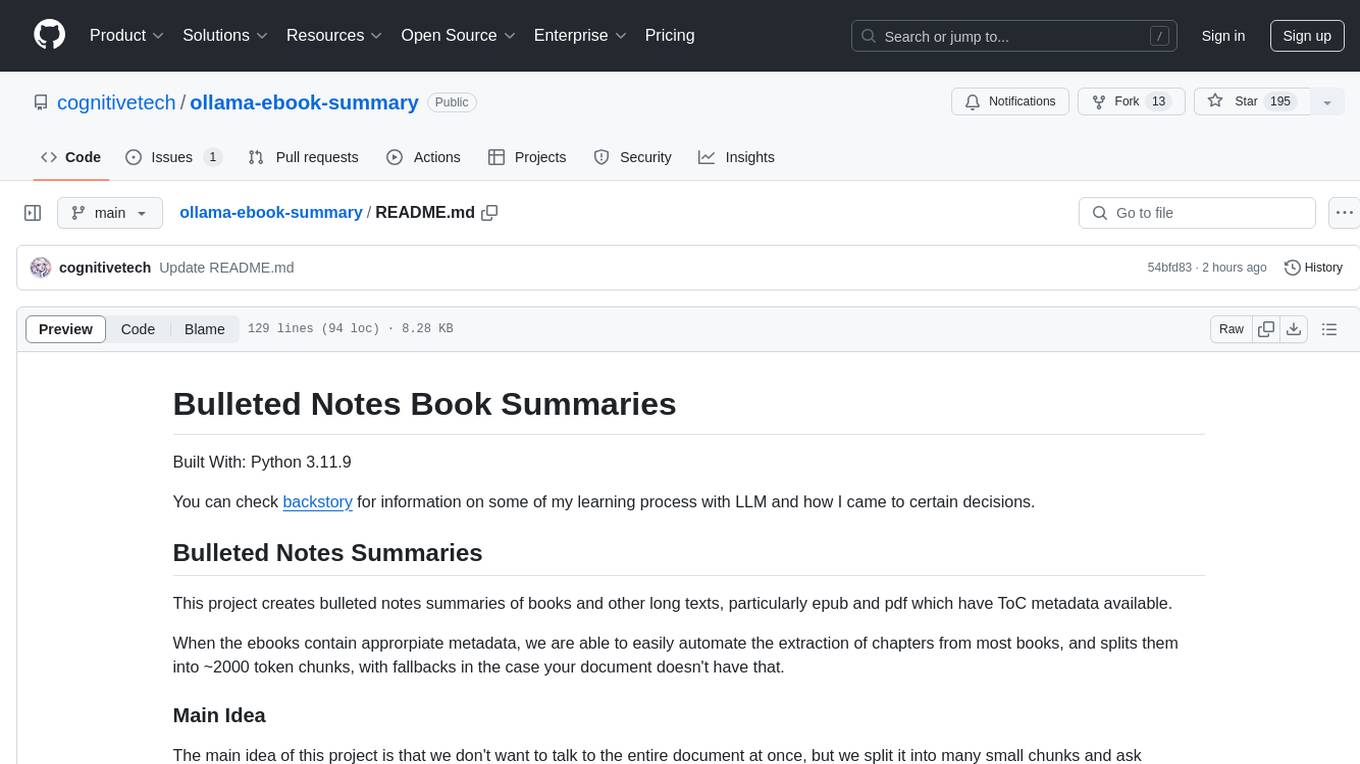
ollama-ebook-summary
The 'ollama-ebook-summary' repository is a Python project that creates bulleted notes summaries of books and long texts, particularly in epub and pdf formats with ToC metadata. It automates the extraction of chapters, splits them into ~2000 token chunks, and allows for asking arbitrary questions to parts of the text for improved granularity of response. The tool aims to provide summaries for each page of a book rather than a one-page summary of the entire document, enhancing content curation and knowledge sharing capabilities.
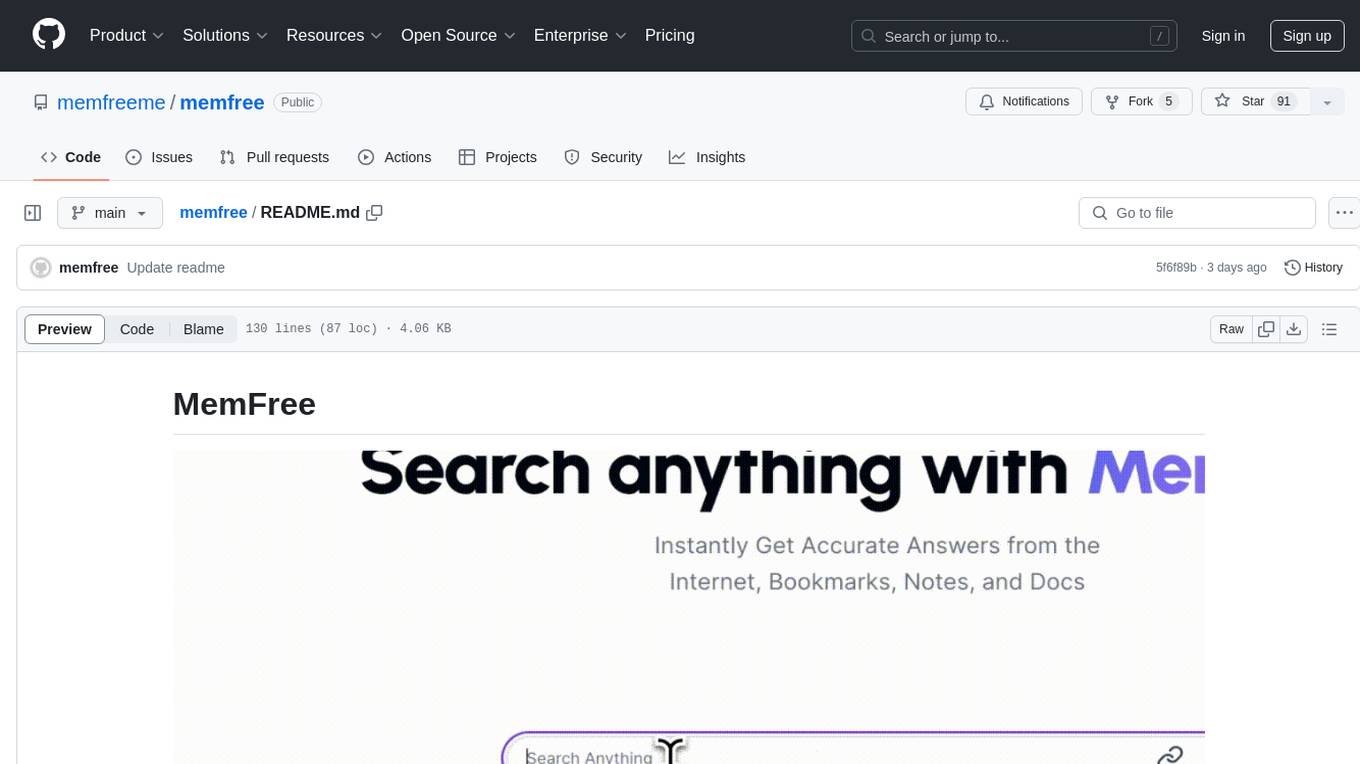
memfree
MemFree is an open-source hybrid AI search engine that allows users to simultaneously search their personal knowledge base (bookmarks, notes, documents, etc.) and the Internet. It features a self-hosted super fast serverless vector database, local embedding and rerank service, one-click Chrome bookmarks index, and full code open source. Users can contribute by opening issues for bugs or making pull requests for new features or improvements.
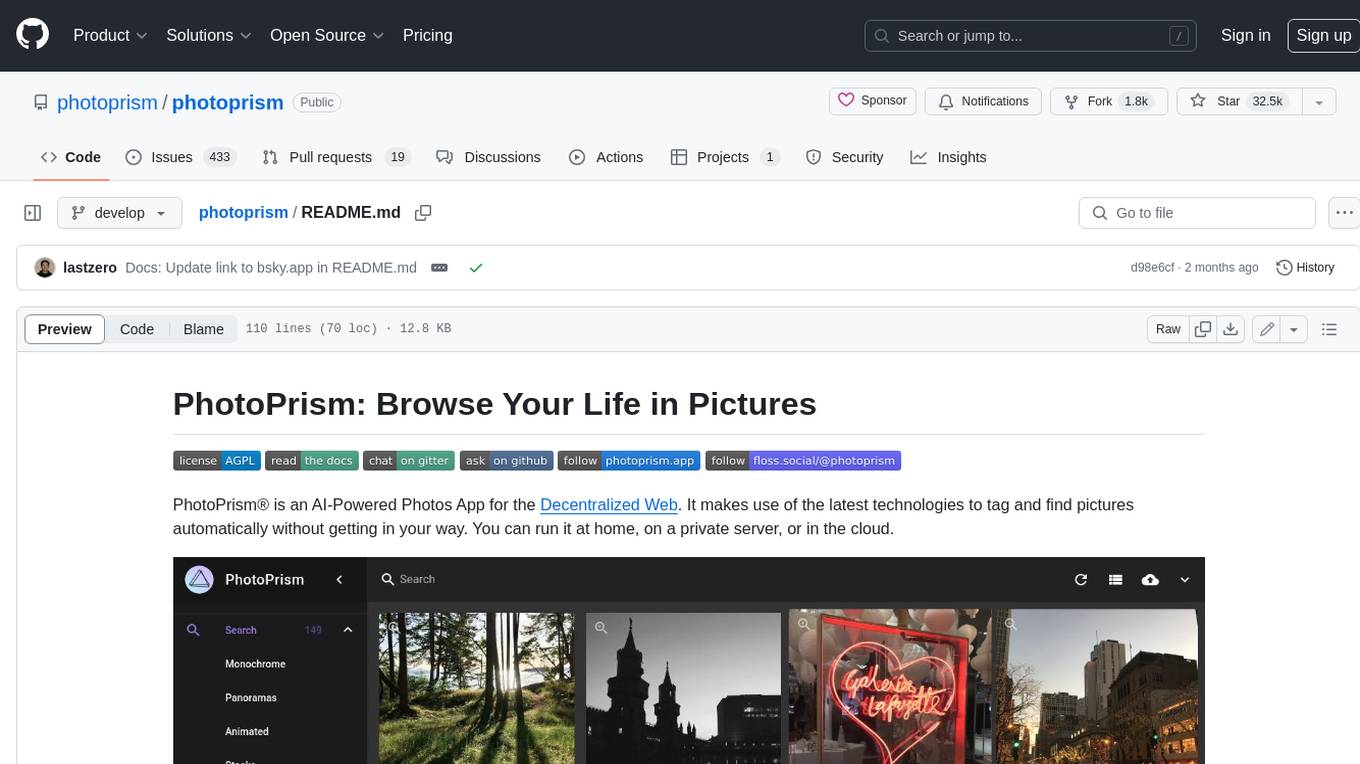
photoprism
PhotoPrism is an AI-powered photos app for the decentralized web. It uses the latest technologies to tag and find pictures automatically without getting in your way. You can run it at home, on a private server, or in the cloud.
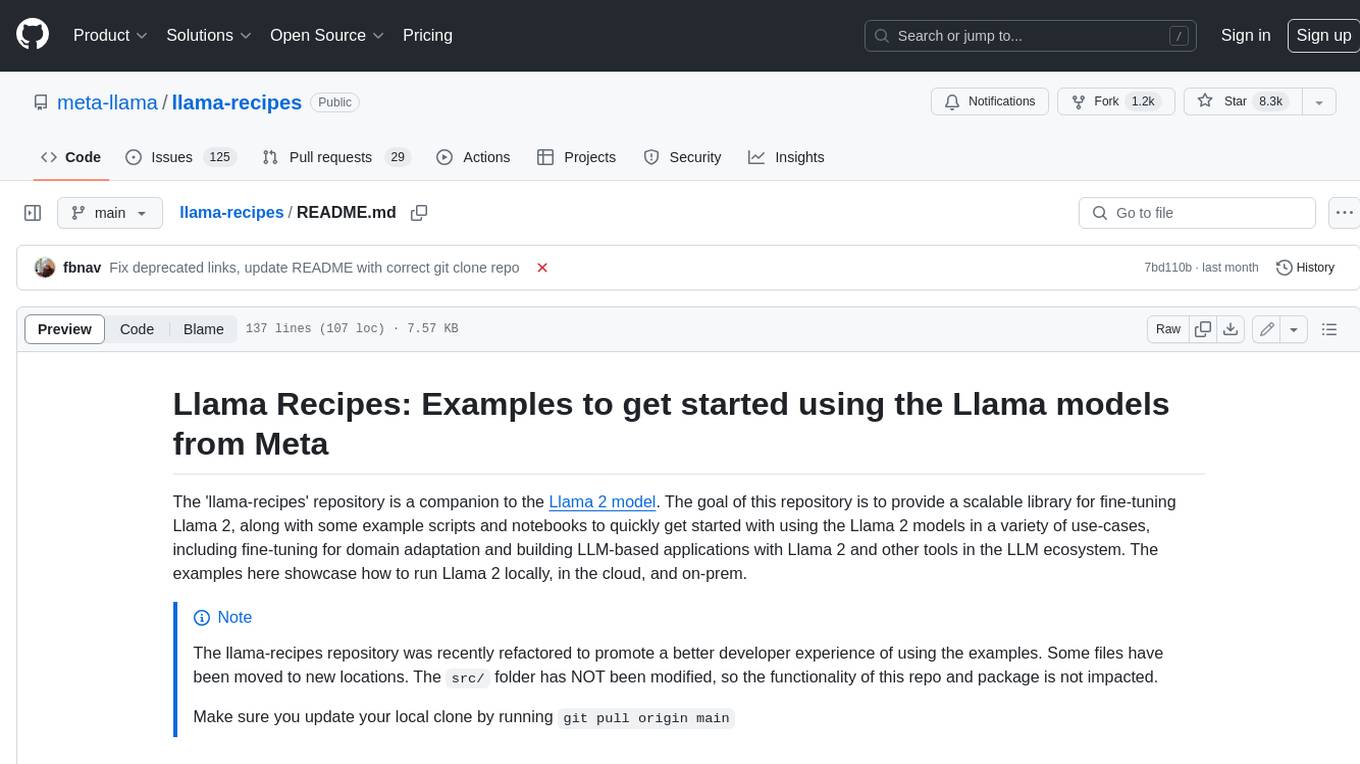
llama-recipes
The llama-recipes repository provides a scalable library for fine-tuning Llama 2, along with example scripts and notebooks to quickly get started with using the Llama 2 models in a variety of use-cases, including fine-tuning for domain adaptation and building LLM-based applications with Llama 2 and other tools in the LLM ecosystem. The examples here showcase how to run Llama 2 locally, in the cloud, and on-prem.

khoj
Khoj is an open-source, personal AI assistant that extends your capabilities by creating always-available AI agents. You can share your notes and documents to extend your digital brain, and your AI agents have access to the internet, allowing you to incorporate real-time information. Khoj is accessible on Desktop, Emacs, Obsidian, Web, and Whatsapp, and you can share PDF, markdown, org-mode, notion files, and GitHub repositories. You'll get fast, accurate semantic search on top of your docs, and your agents can create deeply personal images and understand your speech. Khoj is self-hostable and always will be.
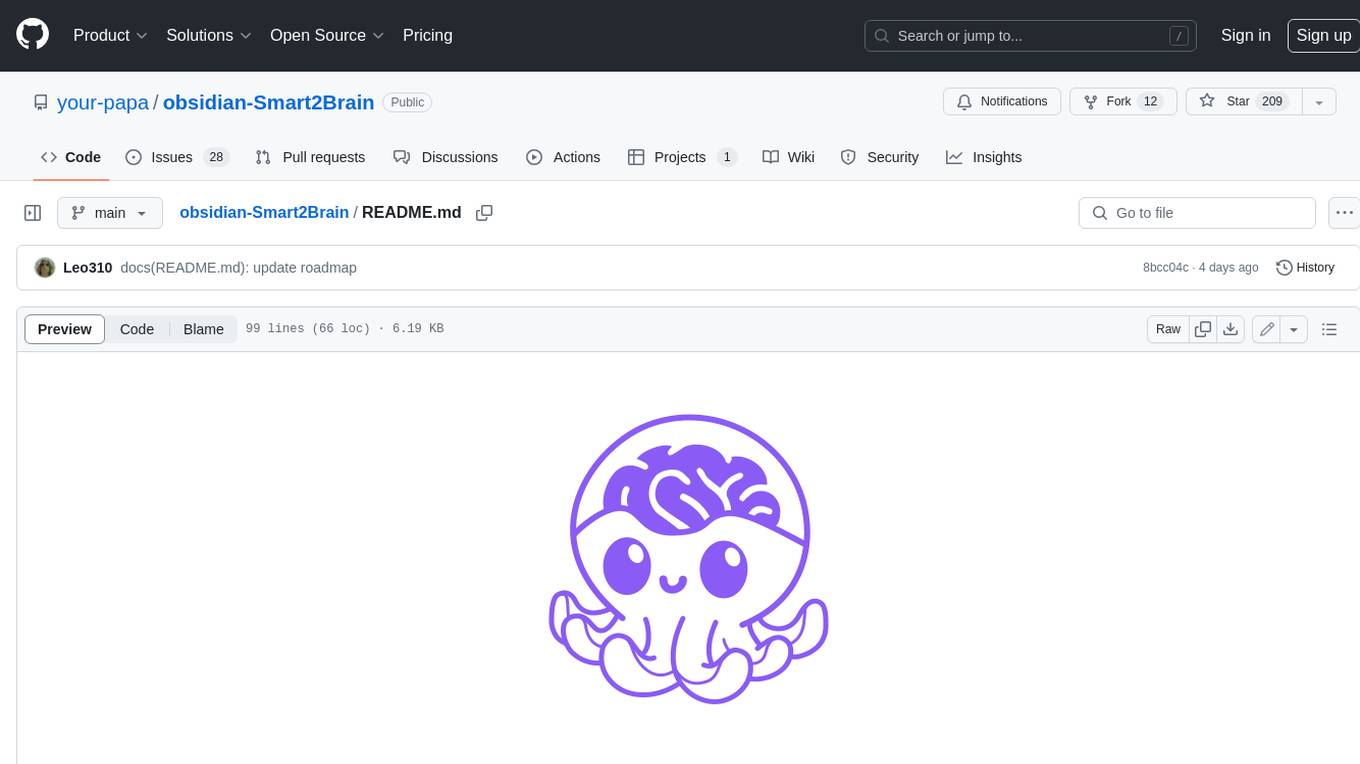
obsidian-Smart2Brain
Your Smart Second Brain is a free and open-source Obsidian plugin that serves as your personal assistant, powered by large language models like ChatGPT or Llama2. It can directly access and process your notes, eliminating the need for manual prompt editing, and it can operate completely offline, ensuring your data remains private and secure.
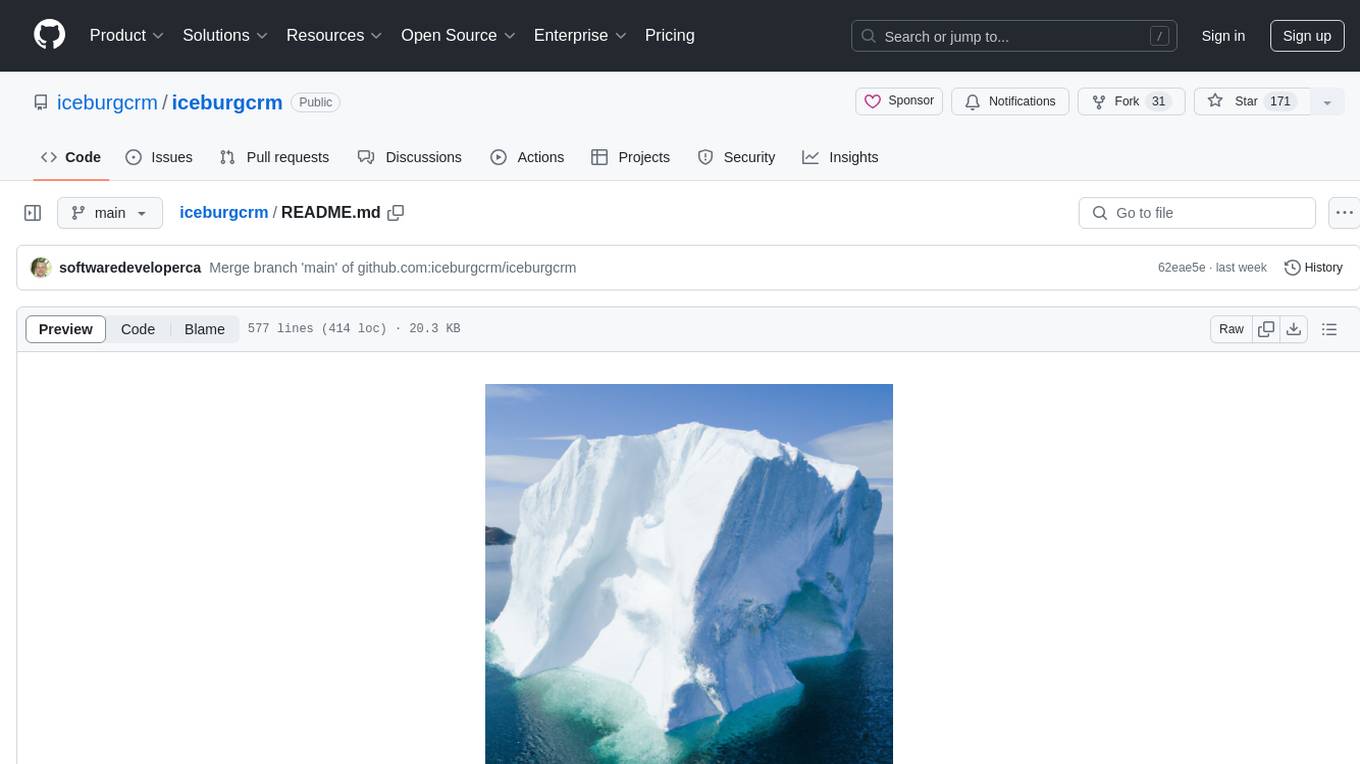
iceburgcrm
Iceburg CRM is a metadata driven CRM with AI abilities that allows users to quickly prototype any CRM. It offers features like metadata creations, import/export in multiple formats, field validation, themes, role permissions, calendar, audit logs, API, workflow, field level relationships, module level relationships, and more. Created with Vue 3 for the frontend, Laravel 10 for the backend, Tailwinds with DaisyUI plugin, and Inertia for routing. Users can install default, admin panel, core, custom, or AI versions. The tool supports AI Assist for module data suggestions and provides API endpoints for CRM modules, search, specific module data, record updates, and deletions. Iceburg CRM also includes themes, custom field types, calendar, datalets, workflow, roles and permissions, import/export functionality, and custom seeding options.

zep-python
Zep is an open-source platform for building and deploying large language model (LLM) applications. It provides a suite of tools and services that make it easy to integrate LLMs into your applications, including chat history memory, embedding, vector search, and data enrichment. Zep is designed to be scalable, reliable, and easy to use, making it a great choice for developers who want to build LLM-powered applications quickly and easily.
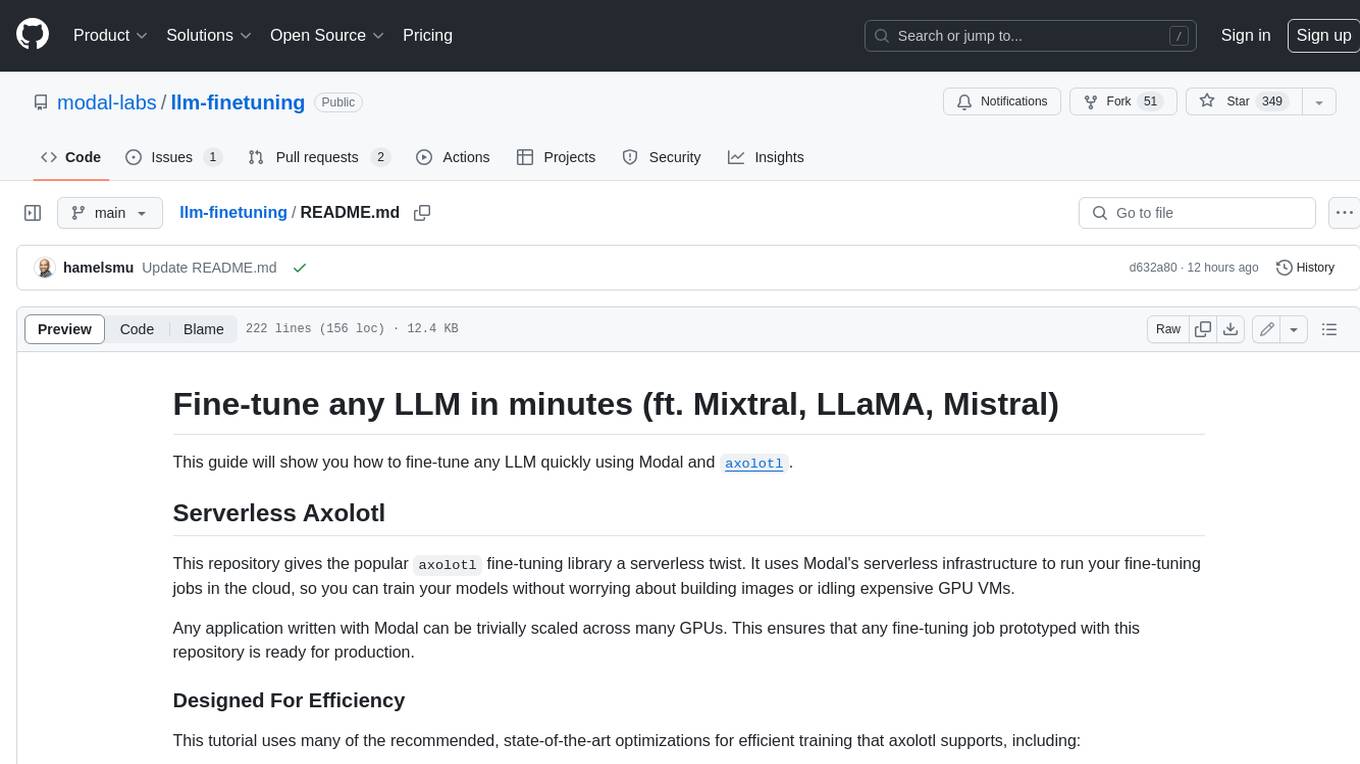
llm-finetuning
llm-finetuning is a repository that provides a serverless twist to the popular axolotl fine-tuning library using Modal's serverless infrastructure. It allows users to quickly fine-tune any LLM model with state-of-the-art optimizations like Deepspeed ZeRO, LoRA adapters, Flash attention, and Gradient checkpointing. The repository simplifies the fine-tuning process by not exposing all CLI arguments, instead allowing users to specify options in a config file. It supports efficient training and scaling across multiple GPUs, making it suitable for production-ready fine-tuning jobs.

AiTreasureBox
AiTreasureBox is a versatile AI tool that provides a collection of pre-trained models and algorithms for various machine learning tasks. It simplifies the process of implementing AI solutions by offering ready-to-use components that can be easily integrated into projects. With AiTreasureBox, users can quickly prototype and deploy AI applications without the need for extensive knowledge in machine learning or deep learning. The tool covers a wide range of tasks such as image classification, text generation, sentiment analysis, object detection, and more. It is designed to be user-friendly and accessible to both beginners and experienced developers, making AI development more efficient and accessible to a wider audience.
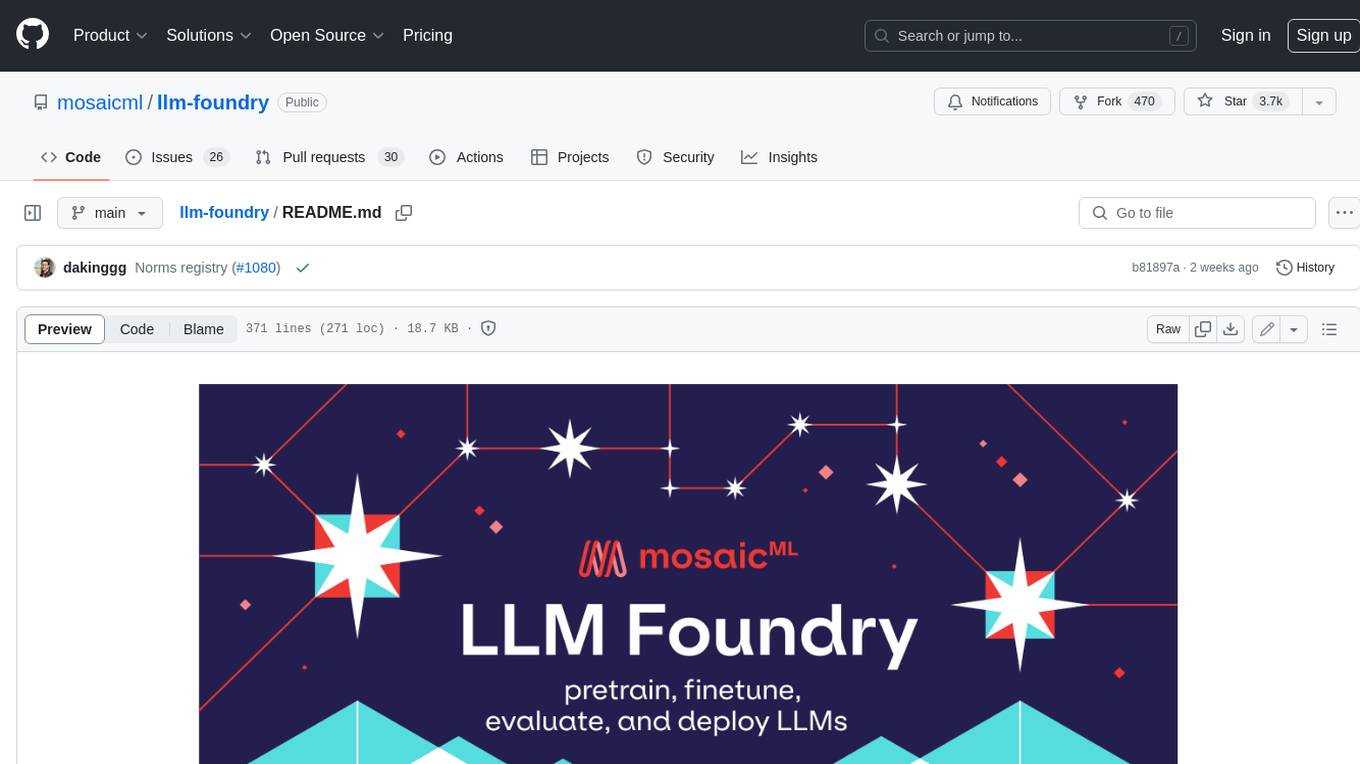
llm-foundry
LLM Foundry is a codebase for training, finetuning, evaluating, and deploying LLMs for inference with Composer and the MosaicML platform. It is designed to be easy-to-use, efficient _and_ flexible, enabling rapid experimentation with the latest techniques. You'll find in this repo: * `llmfoundry/` - source code for models, datasets, callbacks, utilities, etc. * `scripts/` - scripts to run LLM workloads * `data_prep/` - convert text data from original sources to StreamingDataset format * `train/` - train or finetune HuggingFace and MPT models from 125M - 70B parameters * `train/benchmarking` - profile training throughput and MFU * `inference/` - convert models to HuggingFace or ONNX format, and generate responses * `inference/benchmarking` - profile inference latency and throughput * `eval/` - evaluate LLMs on academic (or custom) in-context-learning tasks * `mcli/` - launch any of these workloads using MCLI and the MosaicML platform * `TUTORIAL.md` - a deeper dive into the repo, example workflows, and FAQs

awesome-ai-tools
Awesome AI Tools is a curated list of popular tools and resources for artificial intelligence enthusiasts. It includes a wide range of tools such as machine learning libraries, deep learning frameworks, data visualization tools, and natural language processing resources. Whether you are a beginner or an experienced AI practitioner, this repository aims to provide you with a comprehensive collection of tools to enhance your AI projects and research. Explore the list to discover new tools, stay updated with the latest advancements in AI technology, and find the right resources to support your AI endeavors.
20 - OpenAI Gpts
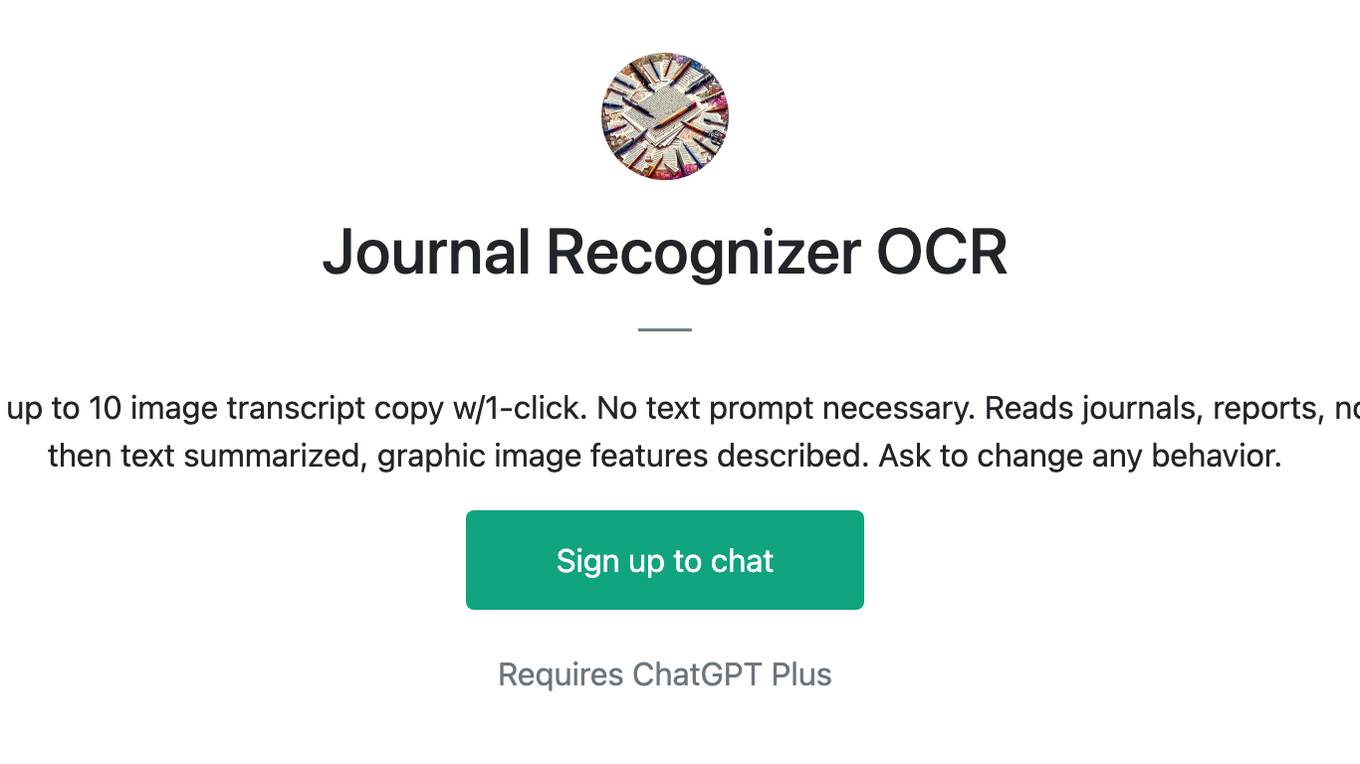
Journal Recognizer OCR
Optimized OCR for Handwritten Notebooks, up to 10 image transcript copy w/1-click. No text prompt necessary. Reads journals, reports, notes. All handwriting transcribed verbatim, then text summarized, graphic image features described. Ask to change any behavior.
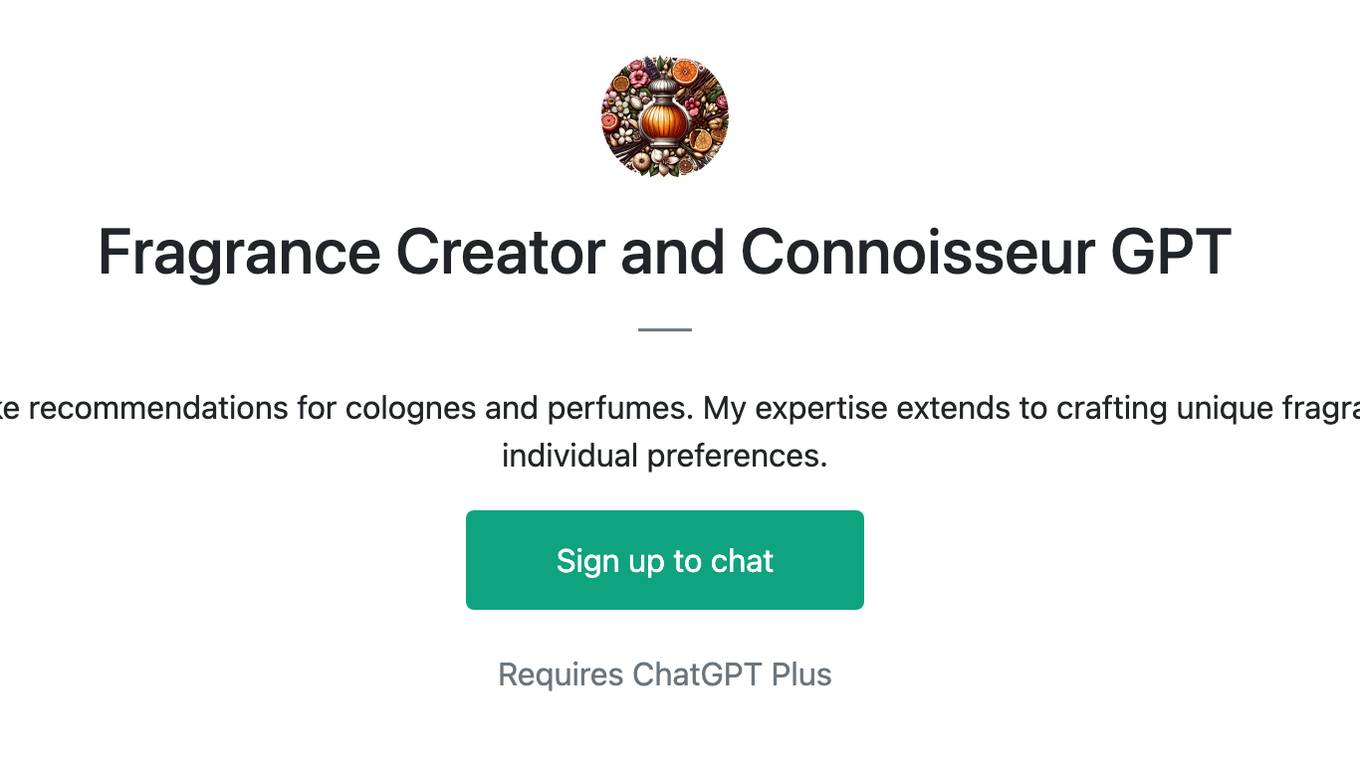
Fragrance Creator and Connoisseur GPT
I am a GPT specialized in providing bespoke recommendations for colognes and perfumes. My expertise extends to crafting unique fragrance creations, tailored to align with your individual preferences.
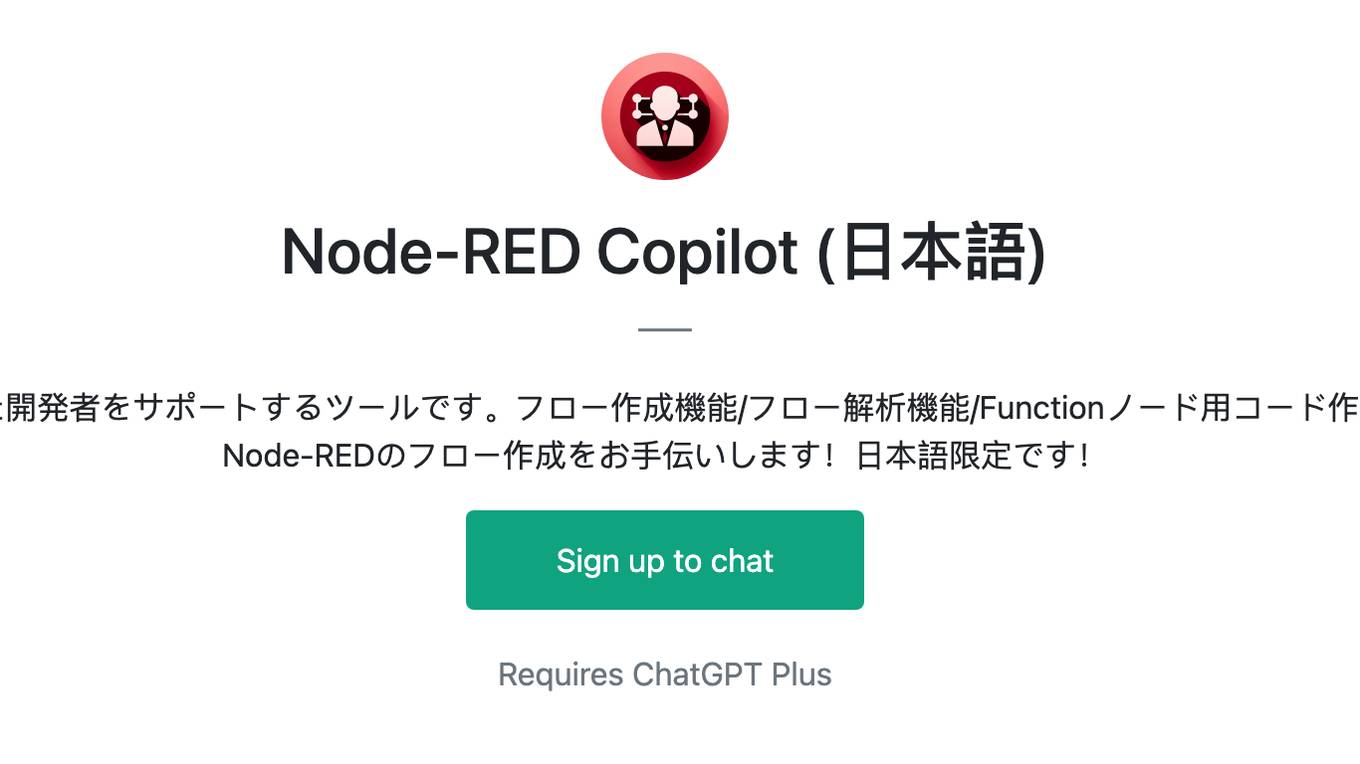
Node-RED Copilot (日本語)
Node-RED Copilot は、Node-REDを使った開発者をサポートするツールです。フロー作成機能/フロー解析機能/Functionノード用コード作成機能/サードパーティノード検索機能でNode-REDのフロー作成をお手伝いします!日本語限定です!
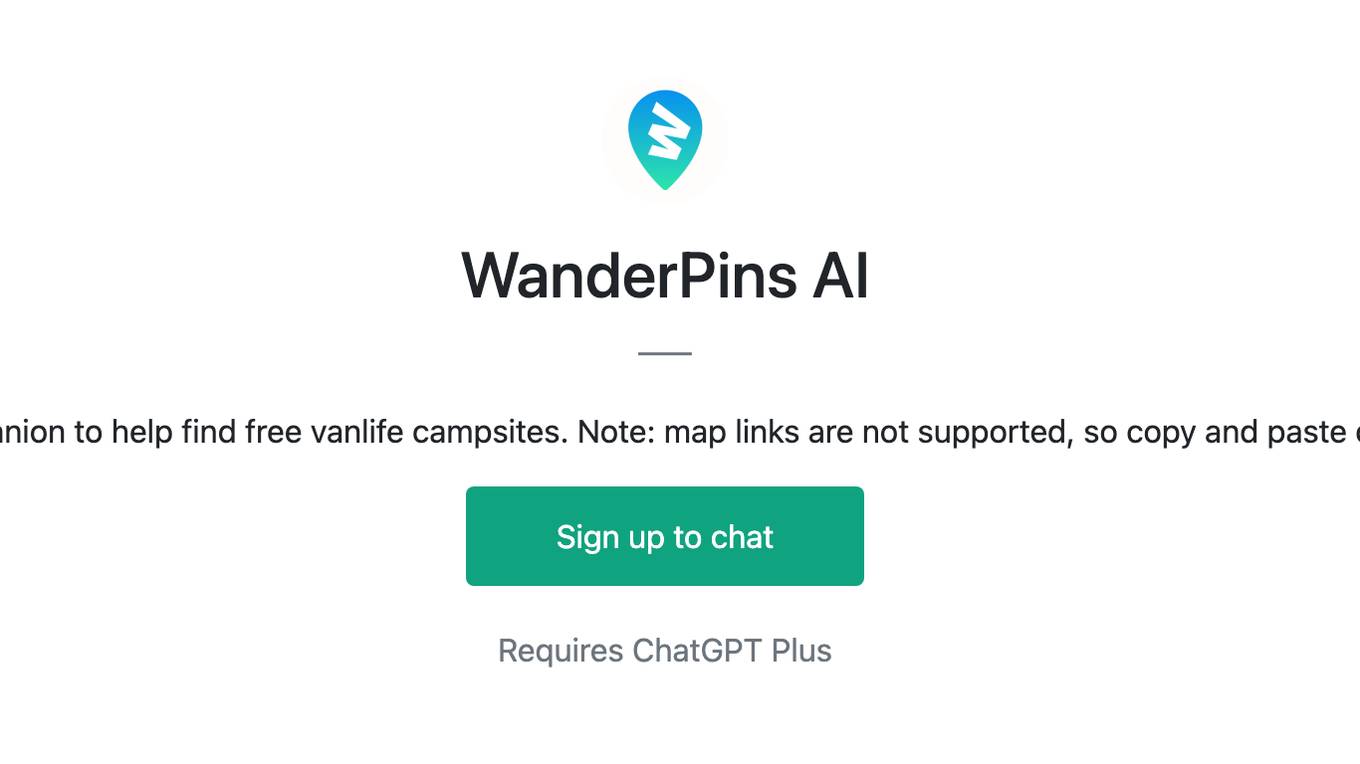
WanderPins AI
Your AI companion to help find free vanlife campsites. Note: map links are not supported, so copy and paste coordinates!
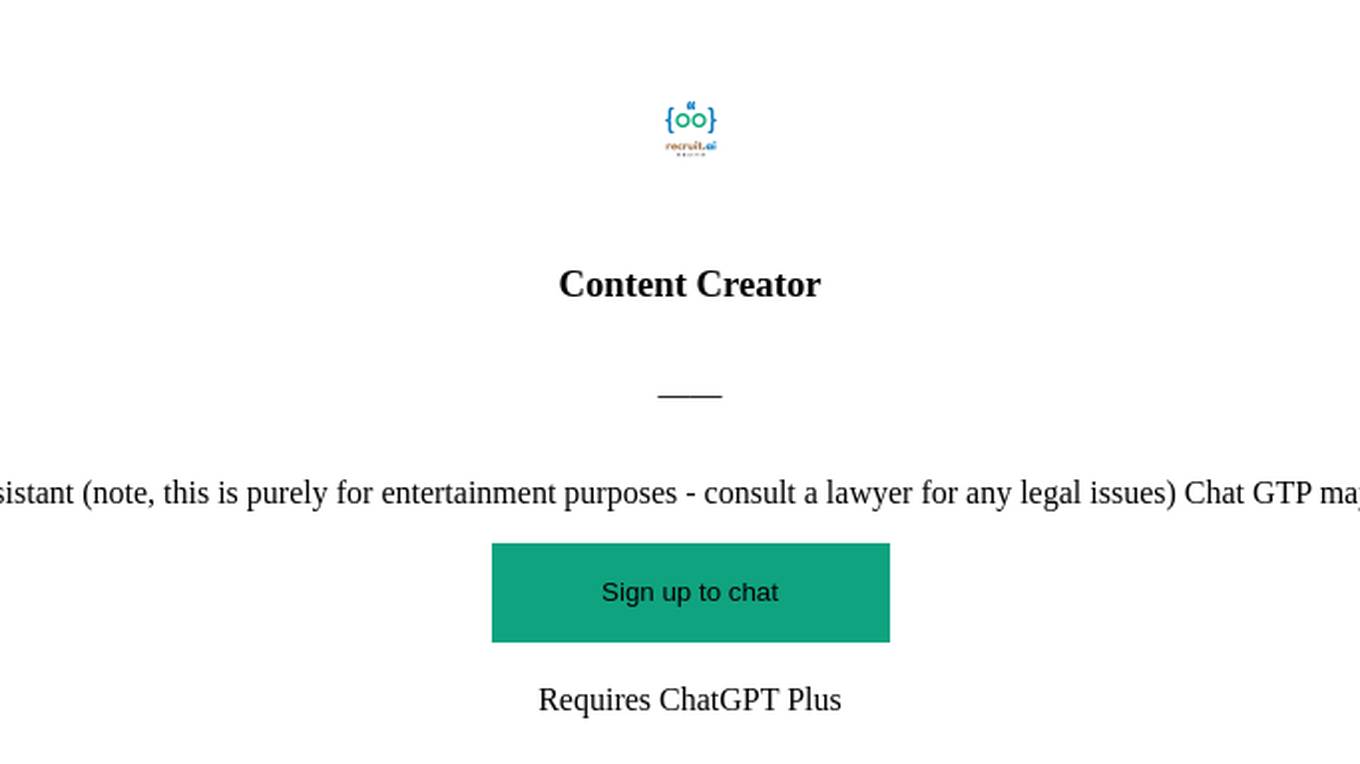
Content Creator
Your recruiting assistant (note, this is purely for entertainment purposes - consult a lawyer for any legal issues) Chat GTP may be prone to errors.
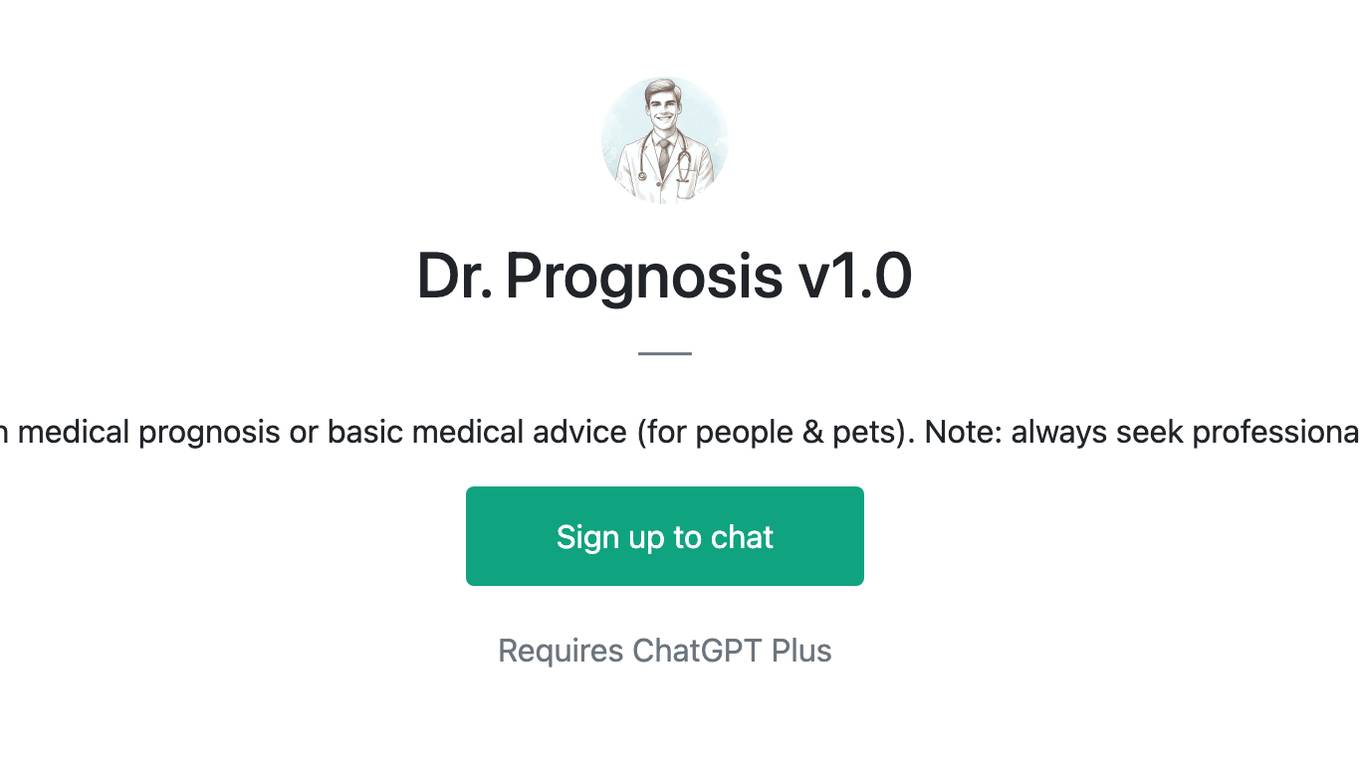
Dr. Prognosis v1.0
Get a rough medical prognosis or basic medical advice (for people & pets). Note: always seek professional opinion.
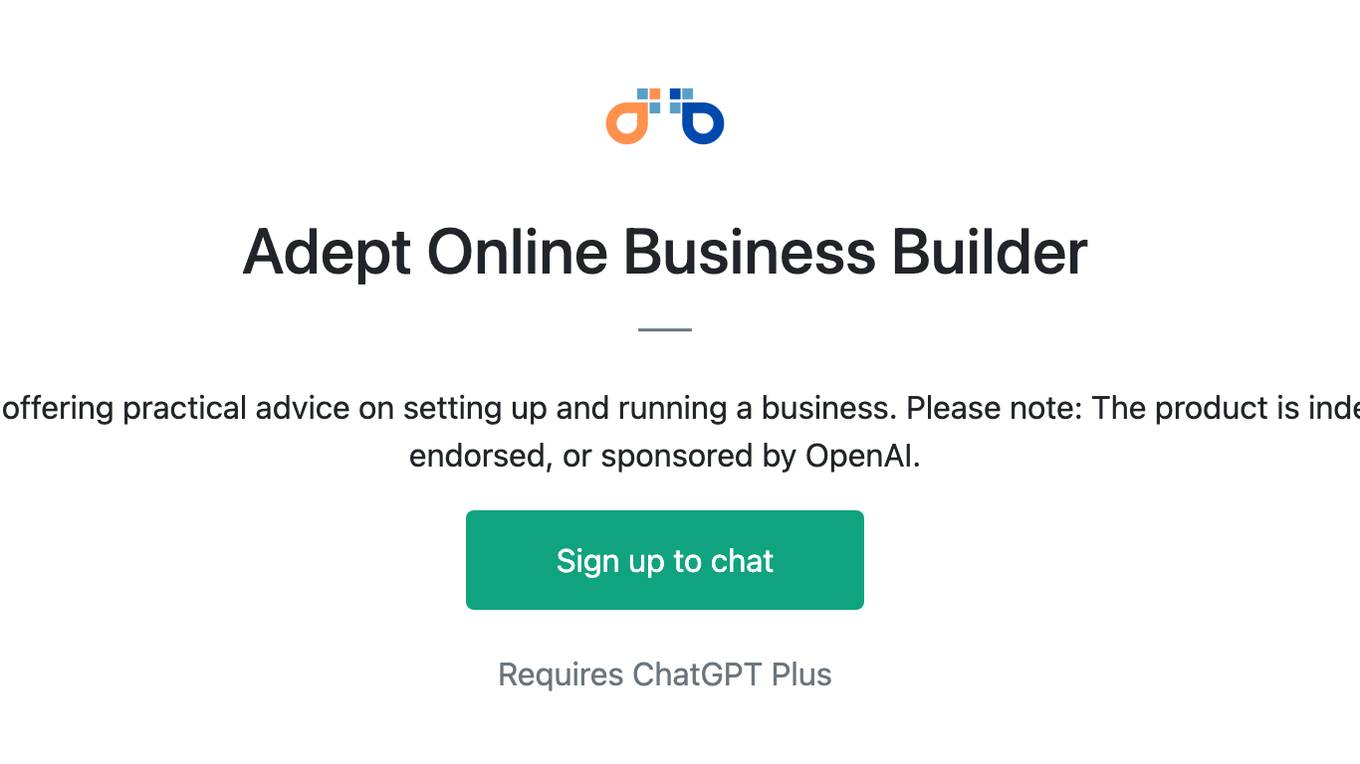
Adept Online Business Builder
A guide for aspiring online entrepreneurs, offering practical advice on setting up and running a business. Please note: The product is independently developed and not affiliated, endorsed, or sponsored by OpenAI.
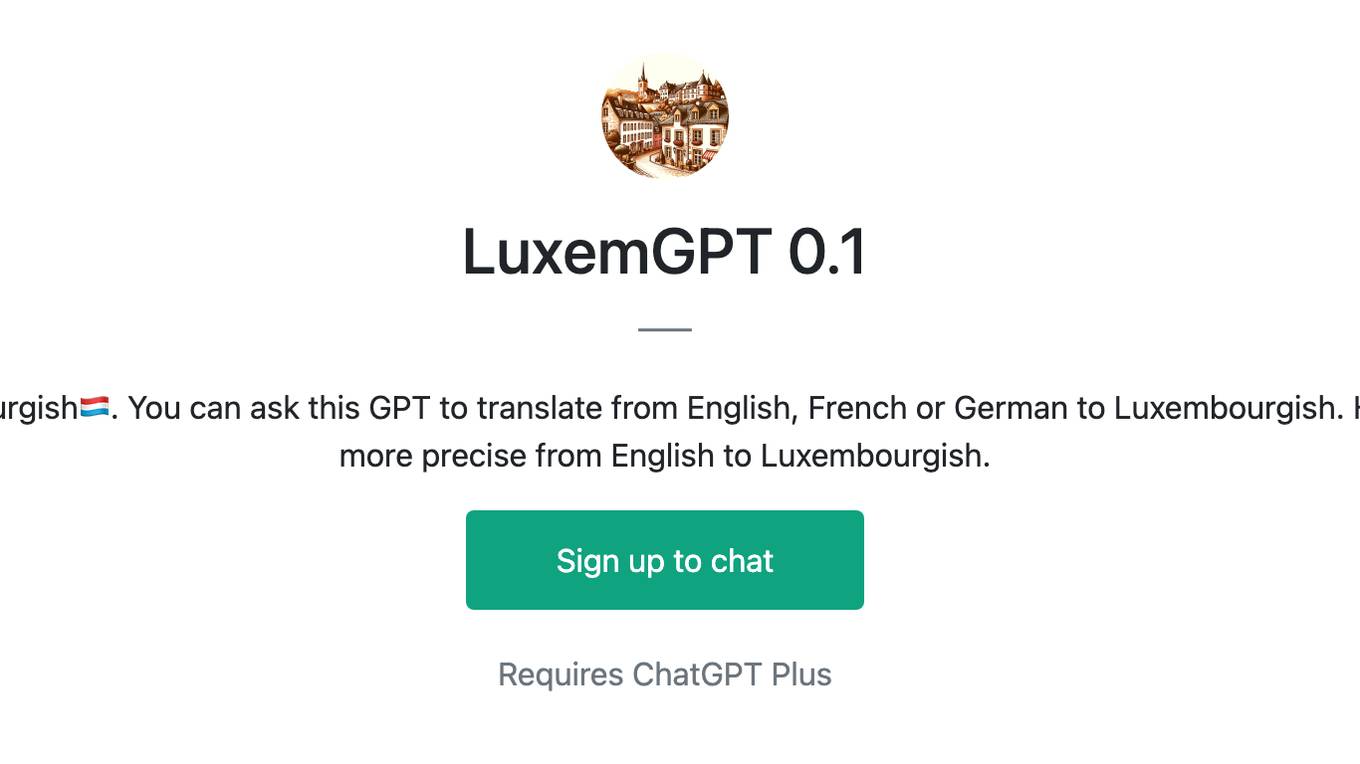
LuxemGPT 0.1
Trying to get a better translator for Luxembourgish🇱🇺. You can ask this GPT to translate from English, French or German to Luxembourgish. However please note that translation will be more precise from English to Luxembourgish.
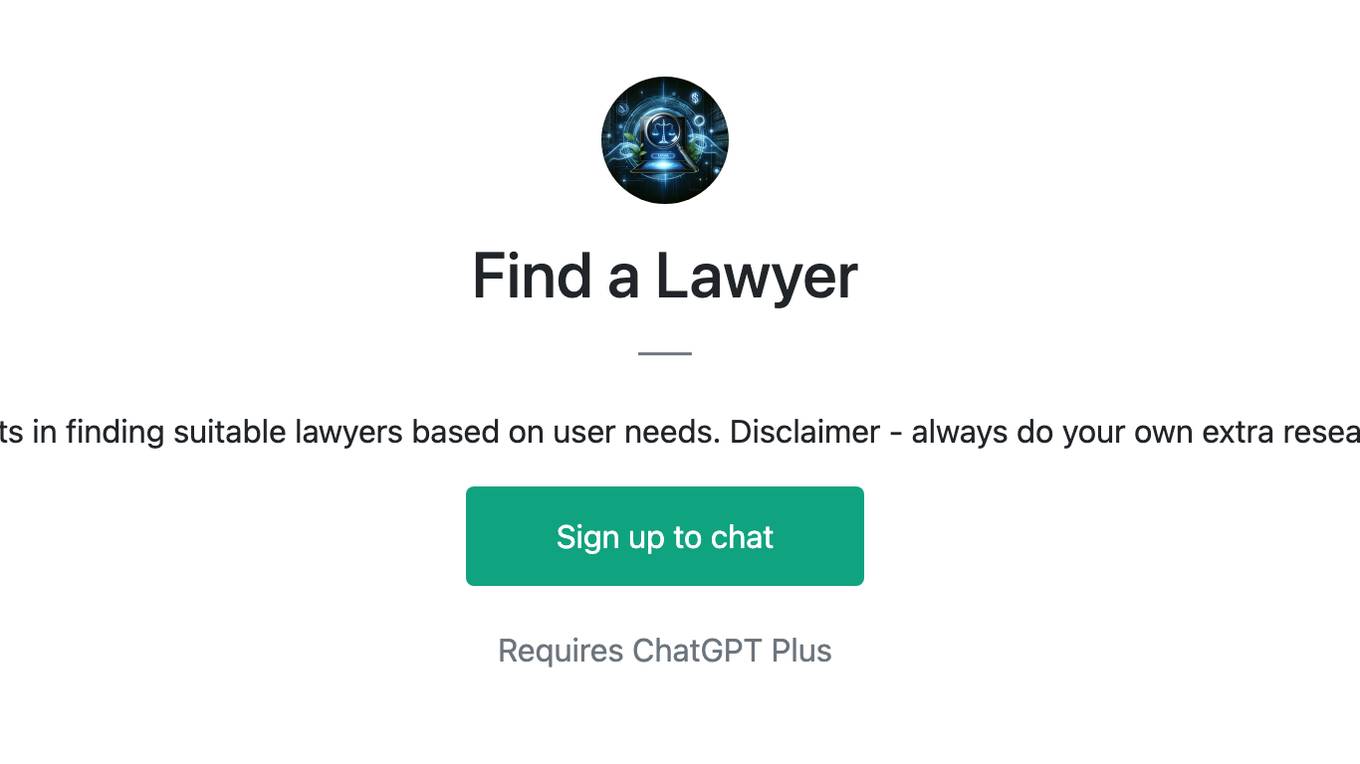
Find a Lawyer
Assists in finding suitable lawyers based on user needs. Disclaimer - always do your own extra research
